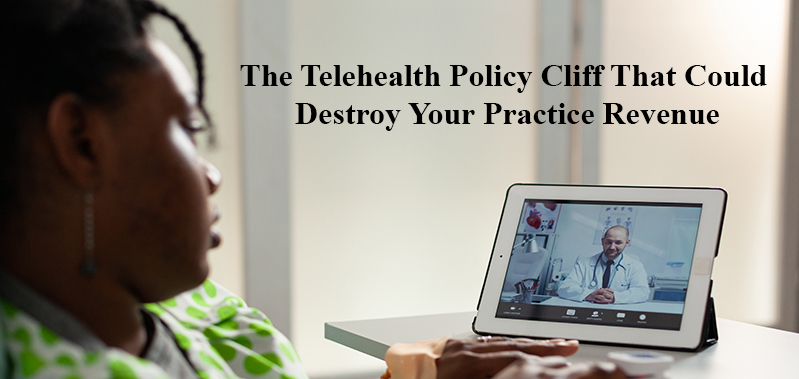
The Telehealth Policy Cliff That Could Destroy Your Practice Revenue
As the COVID-19 public health emergency winds down, the healthcare industry faces a looming crisis: the telehealth policy cliff. This term refers to the upcoming expiration of pandemic-era flexibilities on September 30, 2025. These temporary measures, which allowed patients to receive care from home...
View More

RPM and Virtual Care: Best Practices for Managing Chronic Disease Remotely
Managing chronic disease has always been one of healthcare’s toughest challenges. Patients with diabetes, hypertension, COPD, or heart failure require frequent monitoring, consistent engagement, and timely interventions. But traditional in-person visits alone often fall short—leaving gaps in car...
View More

Avoiding Balance Billing and the Waiving Copays and Deductibles Liability
Healthcare billing has always been a source of confusion and frustration for both patients and providers. One of the most pressing issues today is Balance Billing—a practice that can leave patients with unexpected expenses and providers exposed to compliance risks. Add in the growing scrutiny over...
View More

Teaching Physician Rules and Documentation in 2026
Every teaching physician knows the balancing act: guiding residents, ensuring patients receive safe care, and meeting the maze of billing and compliance requirements. In 2026, that balancing act is about to get even more complicated.
With updates in Medicare’s CY2026 Physician Fee Schedule (PFS...
View More
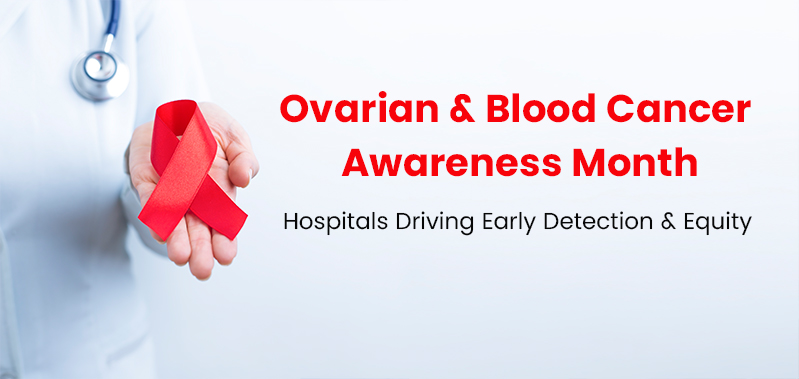
Ovarian and Blood Cancer Awareness Month - Hospitals Driving Early Detectio
Every year, Cancer Awareness Month reminds us of the human stories behind the statistics—patients, families, and healthcare teams fighting for earlier detection and better care. In 2025, the spotlight on ovarian and blood cancers is particularly vital. These diseases often fly under the radar unti...
View More
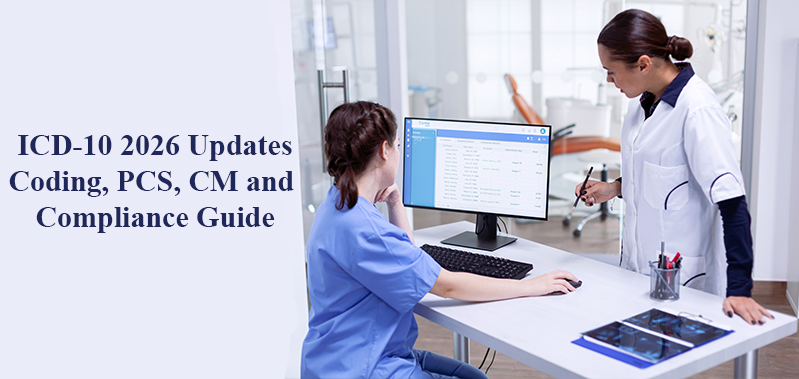
ICD-10-CM and PCS 2026 Updates | New Medical Coding and Compliance
Every year, healthcare professionals brace for new coding revisions that reshape how diagnoses and procedures are reported. With the ICD-10 2026 Updates on the horizon, coders, providers, and compliance teams need to prepare now to avoid errors, denials, and costly rework.
These updates affect bo...
View More

Immigration Raids at the Hospital: How to Balance Patient Confidentiality a
Hospitals in the United States are increasingly finding themselves at the center of a delicate dilemma—how to protect patient rights while complying with federal immigration enforcement. Immigration raids at medical facilities don’t just create operational challenges; they raise tough legal and ...
View More

How to Use CPT G2211 Correctly: 2025 Billing and Compliance Guide
In 2025, CPT G2211 remains one of the most important billing codes for healthcare providers who manage ongoing, condition-focused patient care. Since its introduction, it has offered a way to capture the additional complexity of visits that go beyond a single acute issue. But with constant policy up...
View More

Demystifying CPT 99211 in 2025: A Compliance-Focused Guide for Coders and P
CPT 99211 might seem like the quiet kid in the corner of the Evaluation and Management (E/M) coding family, but don’t let its simplicity fool you. It's a low-level office visit code that’s often misunderstood, underutilized, or, worse, misused. In 2025, with more emphasis than ever on compli...
View More

Closing the Gap: How Social Determinants Drive Health Equity in the United
In the United States, the chances of staying healthy aren’t the same for everyone. While some people can easily get the care they need, others struggle because of things like low income, where they live, or the kind of work they do. These unfair gaps in health are known as health disparities—and...
View More

Nursing Home versus Home Care: How Medicaid Cuts Shift the Balance
For most families, the choice between nursing home and home care is one of the toughest, most emotional decisions they'll ever make. It's not simply a cost issue—it's about dignity, comfort, and a quality of life. But with Medicaid cuts looming in many states, that delicate balance is ...
View More

Medicare Advantage Audit Expansion: What Health Plans and Providers Need to
The Medicare Advantage (MA) landscape is seeing a sea change as the Centers for Medicare & Medicaid Services (CMS) implements a significant audit expansion initiative. The CMS Medicare Advantage audit expansion is more than a bureaucrat's tweak—it's an unmistakable sign of the government&#...
View More

Chronic Care Management Program: Design & Successful Implementation
In one of the rapidly evolving health care environments in the United States, the management of chronic diseases such as diabetes, hypertension, heart failure, and COPD is one of the most challenging tasks. With close to six out of every ten Americans being affected by at least one chronic condition...
View More

Hospice HOPE Assessment Tool: Compassion Through Compliance
In hospice, accuracy and tact are both foremost among priorities, and patient need instruments can make a considerable difference in quality of life for the days remaining. Among required advances is the HOPE Tool —a standard assessment tool created by the Centers for Medicare & Medicaid Services ...
View More

Patient Survey - How and When to Use Them
In today's health care climate, the patient's voice is greater than a comment—it's an influential force that can be wielded to increase care quality, optimise practice operations, and stay in compliance with managed care requirements. Among all the methods for hearing that voice, there...
View More

Credentialing 103 - 2025
Credentialing is more than a bureaucratic hurdle—it's the lifeline of healthcare operations. Whether you’re a medical practice manager, credentialing coordinator, or part of a hospital's administrative team, you’ve likely felt the pressure of delayed provider onboarding. The year 2025 ...
View More

Swing Bed Requirements in 2025
The healthcare market continues to evolve, and 2025 swing bed needs will introduce significant reforms for hospitals, long-term care facilities, and skilled nursing facilities. As more complex patient needs continue to challenge healthcare, the regulatory agencies persist in revising swing bed regul...
View More

Pain Management in Orthopedics Surgery
Orthopaedic surgery commonly involves correcting musculoskeletal trauma, degenerative disease, and deformity. While these procedures enhance quality of life and return function, pain after surgery is a daunting challenge to manage. Optimizing pain in orthopaedic surgery makes patients more comfortab...
View More
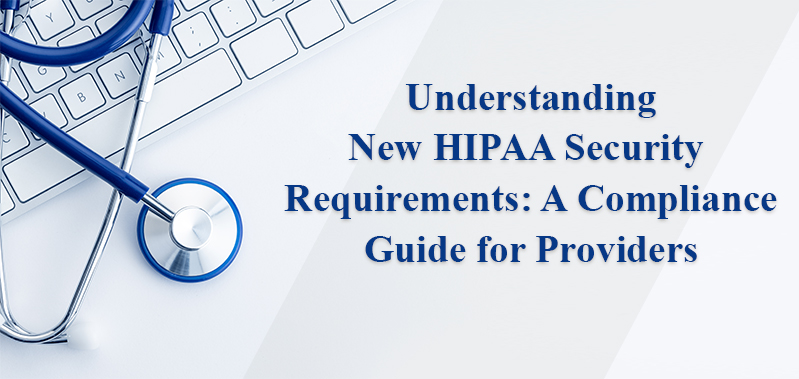
Understanding New HIPAA Security Requirements: A Compliance Guide for Provi
The healthcare industry in the United States is transforming day by day, and with it come the regulations that protect the information of patients. The Health Insurance Portability and Accountability Act (HIPAA) has been the backbone of patient confidentiality and data safeguarding for years. But wi...
View More
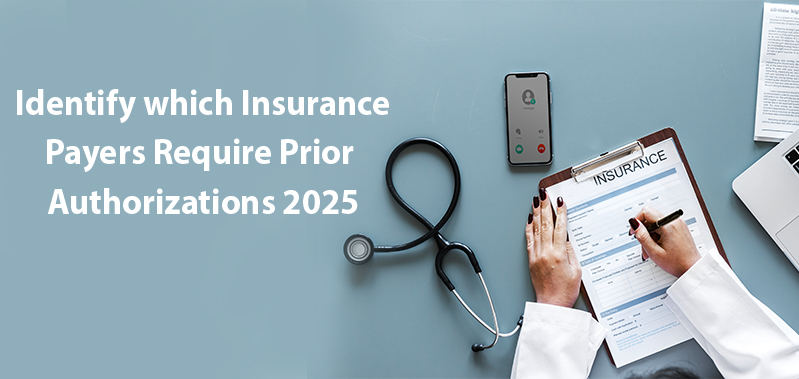
Identify Which Insurance Payers Require Prior Authorizations 2025
In the ever-changing healthcare environment, the Prior Authorization Process for Medical Providers is still an essential but sometimes maddening part of patient care. In planning for the future of 2025, it is more important than ever to know which insurance payers have prior authorisations. This inf...
View More

What Is Provider Credentialing?
As the healthcare industry keeps expanding, ensuring that patients receive the best quality of care available is crucial. Among the most crucial steps that allow this to be possible is provider credentialing, a phrase that sounds like bureaucratese but has a solid basis in patient trust and safety. ...
View More

How to Be a HIPAA Compliance Officer?
Patient confidentiality is more important now than ever in the healthcare setting. HIPAA is the gold standard of discreet patient management of sensitive patient information, and healthcare organizations need highly skilled professionals to guide compliance on their behalf. HIPAA compliance and prot...
View More

Learn Best Practices for Charge Capture to Ensure All Services Are Billed C
In the ever-evolving landscape of healthcare, revenue integrity and charge capture have become critical components of financial success for healthcare organizations. Ensuring that all services are billed correctly is not just about compliance; it’s about maintaining trust with patients, optimizing...
View More

How Webinars Provide Accessible and Up-To-Date Compliance Education
Given the fast-paced nature of the current healthcare sector, it is a fundamental duty of professionals to stay abreast of ever-evolving legislation and regulations. Healthcare compliance offers an assurance that the organizations are kept informed about the legislations, traditions, and good practi...
View More

The 2025 HIPAA Overhaul: Key Changes Every Healthcare Professional Must Kno
The healthcare environment just keeps evolving, and so do the guidelines that govern patient confidentiality and data protection. HIPAA in 2025 will be rewritten to some of the most significant changes, and one of the largest is something that all healthcare professionals need to be familiar with. T...
View More
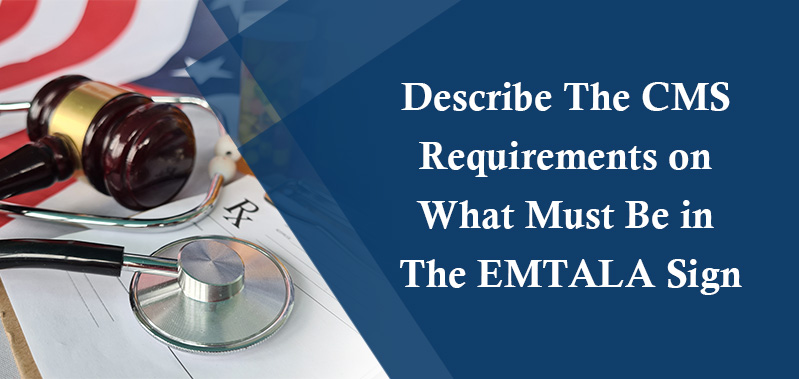
Describe The CMS Requirements on What Must Be in The EMTALA Sign
Few healthcare compliance updates of such magnitude exist as the Emergency Medical Treatment and Labor Act (EMTALA). Enacted into law in 1986, the law mandates that emergency medical treatment be offered to patients regardless of how much they can afford to pay. To effect this mandate, the Centers f...
View More
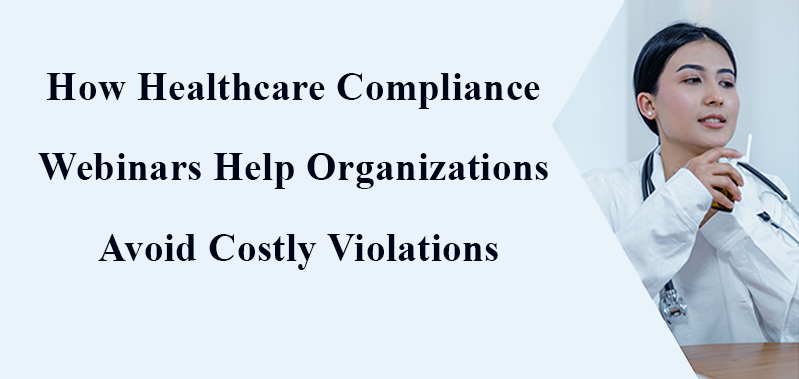
How Healthcare Compliance Webinars Help Organizations Avoid Costly Violatio
In the ever-evolving environment of healthcare, regulatory compliance is no longer best practice but imperative. Noncompliance can be ruinous in its effects, from monetary fines to legal proceedings and reputational harm. Healthcare compliance webinars have become an essential instrument for organiz...
View More

Be Prepared, Stay Safe Active Shooter Webinar
With the unpredictability of today's world, safety is the most imperative concern for people, families, and organizations. The rising instances of active shooters have become an eye-opener to the necessity of prevention in saving lives. Among the best ways of preparing for such emergencies is th...
View More

Patient Experience and Nurse Challenges in 2024: Lessons Learned and Pathwa
Transformation marked the health sector of the year 2024, combined with great innovation and continued resistance. As most parts of the world continue rising from the backwash of the effects of COVID-19, medical sectors try harder to come up with the finest patient care towards new challenges. And t...
View More

How to Become a HIPAA Compliance Officer
Understand the Role of a HIPAA Compliance Officer
A HIPAA Compliance Officer is responsible for ensuring an organization adheres to all HIPAA regulations regarding patient data privacy and security. Their duties typically include:
Assessing and Managing Risk: Identifying vulnerabilities ...
View More

What are 16 Conditions of Participation for Hospitals
CMS develops Conditions of Participation (CoPs) and Conditions for Coverage (CFCs) that healthcare organizations must meet to begin and continue participating in the Medicare and Medicaid programs. These health and safety standards are the foundation for improving quality and protecting the health a...
View More
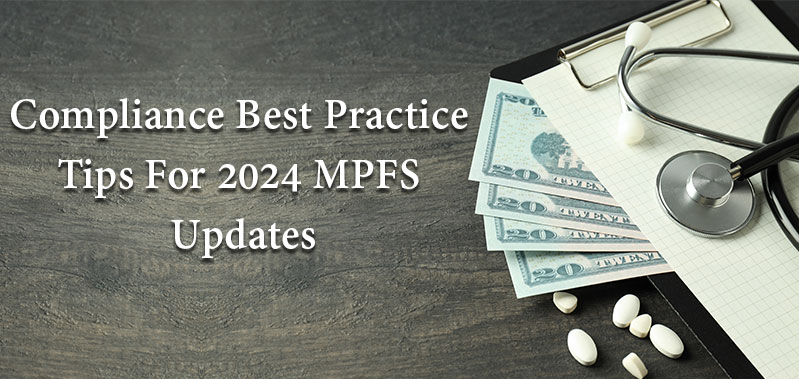
Compliance Best Practice Tips For 2024 MPFS Updates
The Centers for Medicare & Medicaid Services (CMS) finalized policies to advance health equity by expanding assistance to family caregivers, access to behavioral care, and telehealth through the calendar year (CY) 2024 Medicare Physician Fee Schedule (MPFS) final rule, which health systems and provi...
View More

Understanding CMS Restraint and Seclusion: Strategies for Healthcare Profes
Navigating CMS standards for restraint and seclusion is perhaps one of the most challenging areas for healthcare professionals within the complex landscape of healthcare compliance. The standards are very important to patient safety, ethical practice, and federal compliance. Still, they often prove ...
View More

Best Practices for Medicare and Medicaid Managed Care Enrollments
Managed care programs for Medicare and Medicaid account for millions of Americans who get healthcare services delivered to them. These programs not only help deliver quality care for the beneficiaries but also ensure control over healthcare spending. The processes of enrollment under these programs ...
View More

Top 5 Strategies for Educating Key Stakeholders on the 2024 MPFS Updates
The Centers for Medicare & Medicaid Services published its Medicare Physician Fee Schedule final rule on Nov. 1, 2024. The agency also establishes a new specialty measure set for optometry for the CY 2025 performance period and the 2027 MIPS payment year and subsequent years.
In the 2023 MPFS fin...
View More
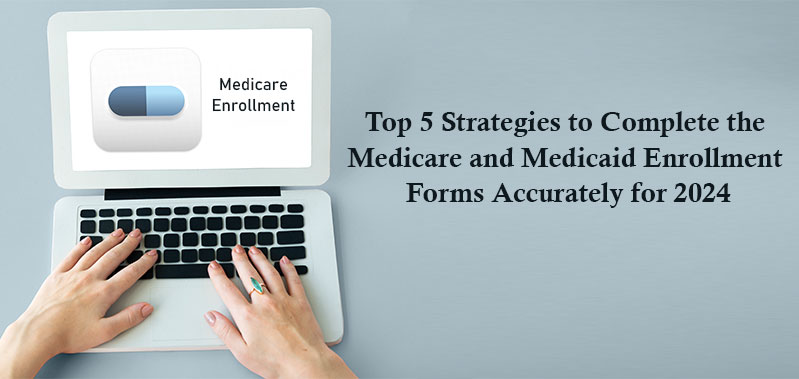
Top 5 Strategies to Complete the Medicare and Medicaid Enrollment Forms Acc
The process of registering with Medicare and Medicaid Managed Care Enrollment is very lengthy and time-consuming. The number of new Medicare and Medicaid managed care enrollment applications continues to decline because of the significant complexities surrounding the requirements for application enr...
View More

Emergency Preparedness: Organizing Hospitals for Seasonal Virus Outbreaks i
Outbreaks of infectious disease, disasters, and conflict have reminded the world of the reality that it is still prone to health emergencies with global consequences. Significant gaps still exist in the ability of many countries to address all hazards, health emergencies, and disaster risks. WHO has...
View More
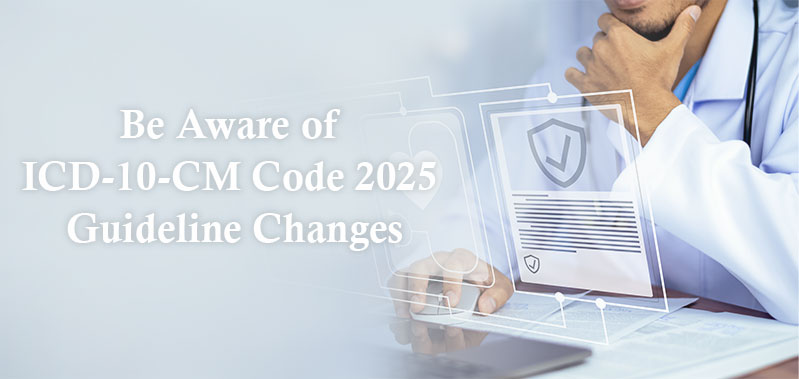
Be Aware of ICD-10-CM Code 2025 Guideline Changes
The updates to the ICD-10-CM Official Guidelines for Coding and Reporting are minimal for 2025. Most of the updates are necessary to maintain consistency in how things are referenced in the guidelines based on the addition of new codes. The International Classification of Diseases 10th revision clin...
View More
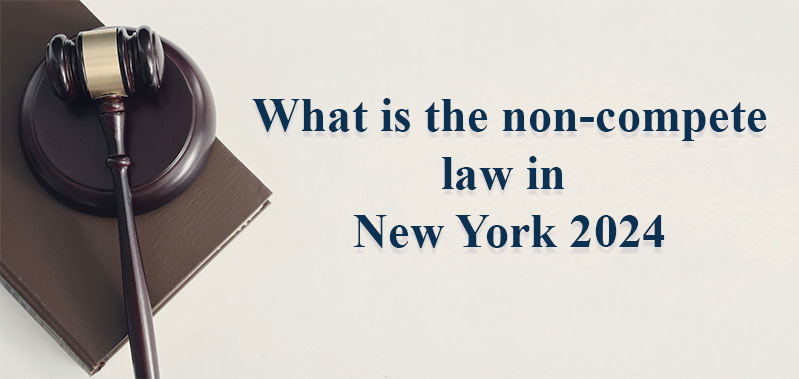
What is the non-compete law in New York 2024?
What is the non-compete law in New York 2024?
Non-compete agreements are legally binding agreements that some employers impose on their employees to restrict them from working for a competing company for some time after leaving the job. Given that Employees who signed non-competes are unlikely to...
View More

Consumer Perceptions on Second Opinions and Concierge Health Services
Information asymmetries are so prevalent in markets for physician services that they can be said to characterize these markets.1 One particular asymmetry between physicians and patients is that for many health problems, patients cannot diagnose themselves. Instead, they have to rely on a physician t...
View More

The Rise of Person-Centered Care in Healthcare
In the past, healthcare was often focused on treating diseases rather than people. Patients were viewed as passive recipients of care rather than active participants in their health. However, in recent years, there has been a shift towards a more patient-centered approach to healthcare. Patient-cent...
View More
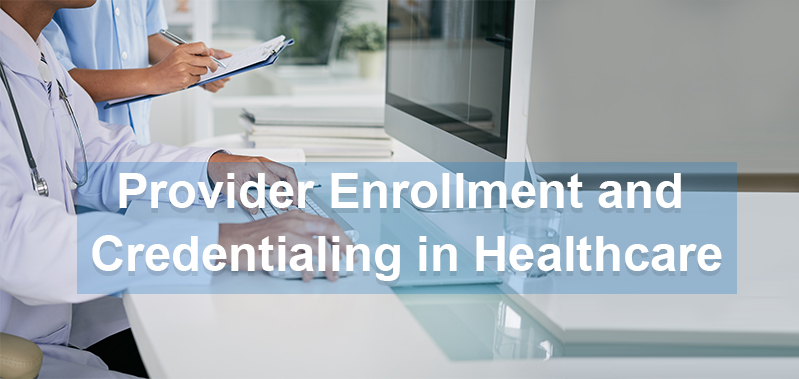
Provider Enrollment and Credentialing in Healthcare
Provider credentialing in healthcare refers to the process of verifying and evaluating the qualifications, credentials, and background of healthcare providers, such as physicians, nurses, and other allied healthcare professionals, before allowing them to provide care to patients. This process typica...
View More
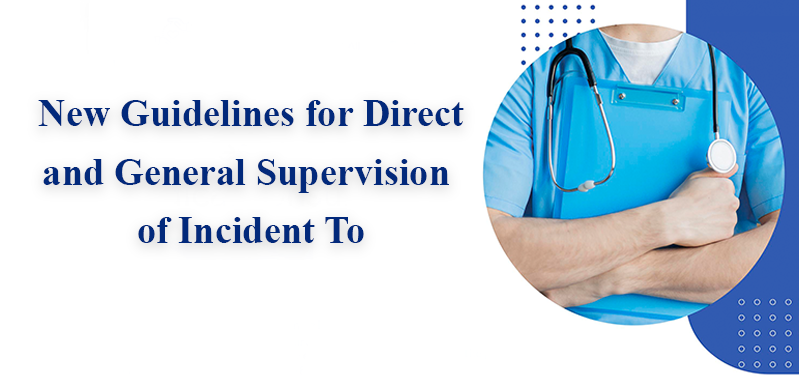
New Guidelines for Direct and General Supervision of Incident To
The Centers for Medicare & Medicaid Services (CMS) sets guidelines and regulations to ensure adherence to reimbursement rules for incident-to-services. Some of CMS Physician's final rules center around practices that employ advanced practice providers (APPs). When auditing medical records, it’...
View More
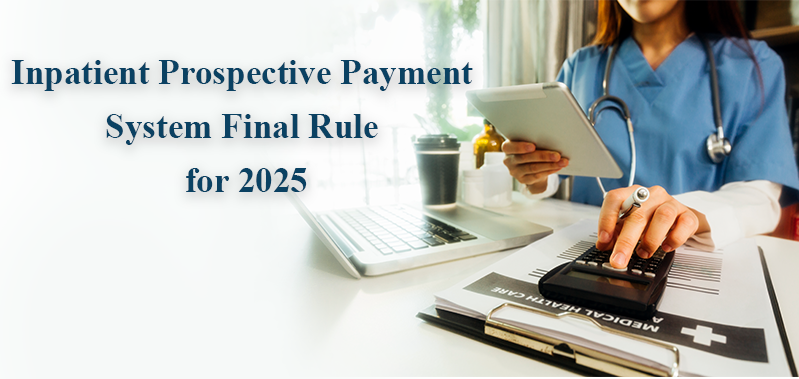
Inpatient Prospective Payment System Final Rule for 2025
The Inpatient Prospective Payment System (IPPS) Final Rule for 2025 introduces significant updates that will shape how hospitals receive Medicare payments for inpatient services. On August 1, 2024, the Centers for Medicare & Medicaid Services (CMS) announced the final rule for the FY 2025 Inpatient ...
View More

What Is The Hospital Value-Based Purchasing Program
The Hospital VBP Program rewards acute care hospitals with incentive payments for the quality of care provided in the inpatient hospital setting. This program adjusts payments under hospitals' Inpatient Prospective Payment System (IPPS) based on the quality of care they deliver.
Hospital Inpa...
View More
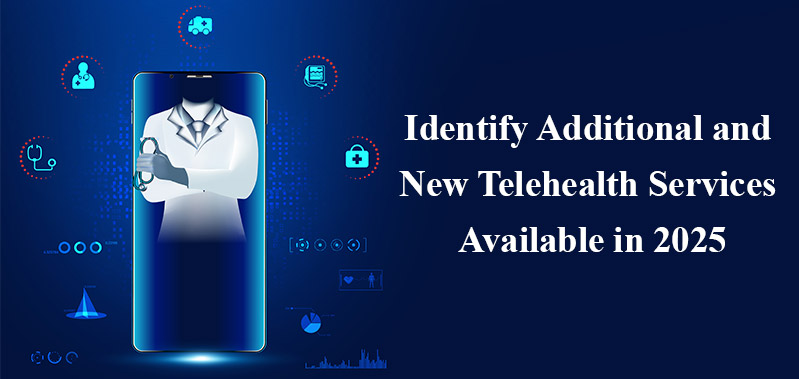
Identify Additional and New Telehealth Services Available in 2025
The future of telemedicine will be influenced not only by technology but also by allowing users to benefit from these incredible breakthroughs while maintaining a privacy-focused and evidence-based approach. Patients must learn how to navigate internet platforms, grasp health informatics, and use co...
View More
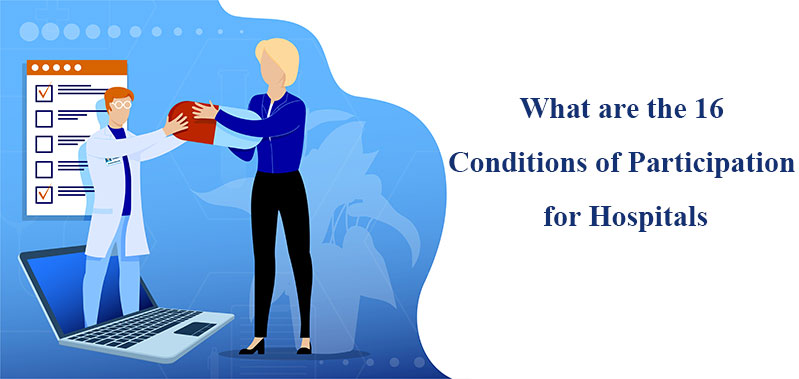
What are the 16 Conditions of Participation for Hospitals
CoPs are qualifications developed by CMS that healthcare organizations must meet in order to begin and continue participating in federally funded healthcare programs (Medicare, Medicaid, CHIPS, etc.). These standards involve health and safety guidelines that protect all beneficiaries by improving qu...
View More
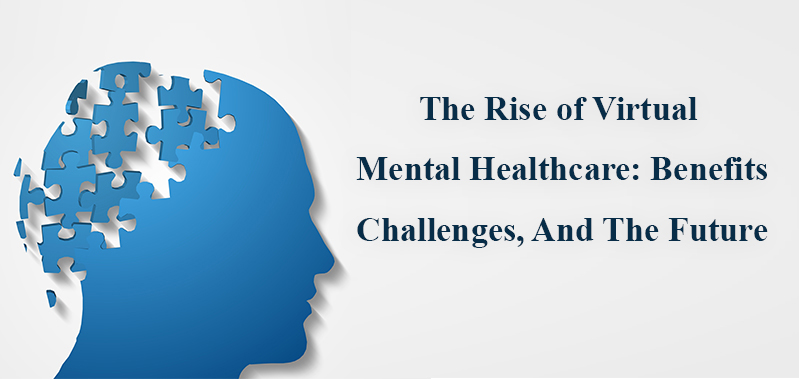
The Rise of Virtual Mental Healthcare: Benefits, Challenges, and the Future
The COVID-19 pandemic has highlighted the urgent need for behavioral health care services. A substantial portion of mental health care transitioned to virtual care during the COVID-19 pandemic remains virtual today and will continue that way in the future. Mental health needs continue to grow, and t...
View More

Integrating Food and Healthcare: How Grocery Stores Can Drive Better Healt
Health is a much more important topic in food retail today, and for good reason: consumers have placed it at the front and center of the market. Consumers are passionate about embracing health in many aspects of their lives, and food is a big part of this. As healthcare costs soar and chronic diseas...
View More

The Role of Predictive Length of Stay in Modern Healthcare: Benefits and Ch
The length of stay of patients in hospitals is a crucial factor for the effective planning and management of hospital resources. There is considerable interest in predicting the LoS of patients in order to improve patient care, control hospital costs, and increase service efficiency. This paper pres...
View More
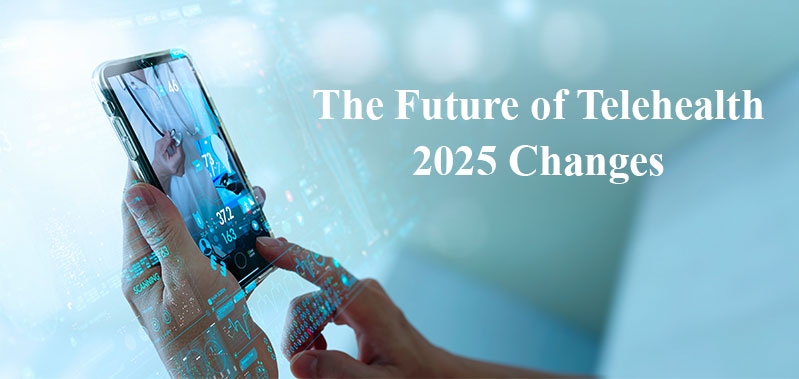
The Future of Telehealth: 2025 Changes
Telehealth has grown exponentially in recent years, revolutionizing the way healthcare is delivered. With evolving regulations, advancements in technology, and increasing patient demand, 2025 is poised to be another transformative year. Explore the evolution and 2025 changes in telehealth that are s...
View More

Impact of New CPT Codes on Wound Care Reimbursement
With the annual updates to Current Procedural Terminology (CPT) codes, healthcare providers must stay vigilant about changes that directly impact their billing and reimbursement processes. For wound care professionals, new CPT codes bring essential adjustments that can affect how services are report...
View More
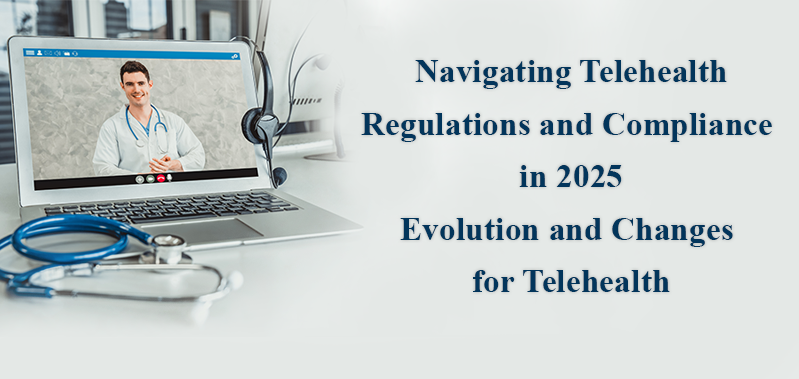
Navigating Telehealth Regulations and Compliance in 2025: Evolution and Cha
As healthcare delivery rapidly evolves, telehealth has emerged as a cornerstone of accessible patient care, connecting patients and providers across distances with just a few clicks. However, with this growth comes a complex regulatory landscape. Navigating telehealth regulations in 2025 requires a ...
View More
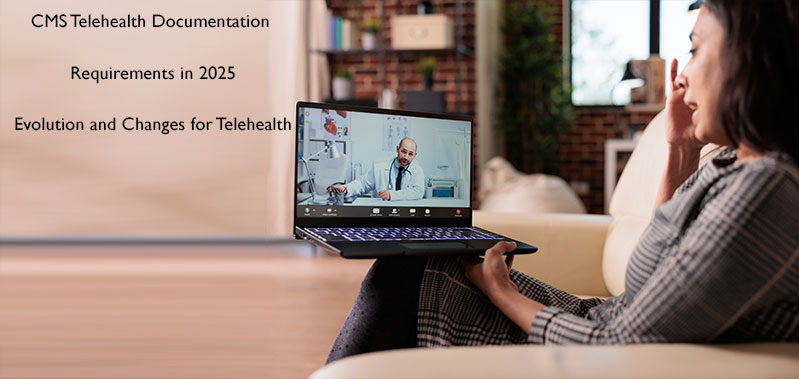
CMS Telehealth Documentation Requirements in 2025 � Evolution and Changes f
As the demand for telehealth continues to grow, the Centers for Medicare & Medicaid Services (CMS) is evolving its guidelines to ensure that quality care, patient accessibility, and comprehensive documentation remain at the forefront. The telehealth landscape is expected to change in 2025, with adju...
View More
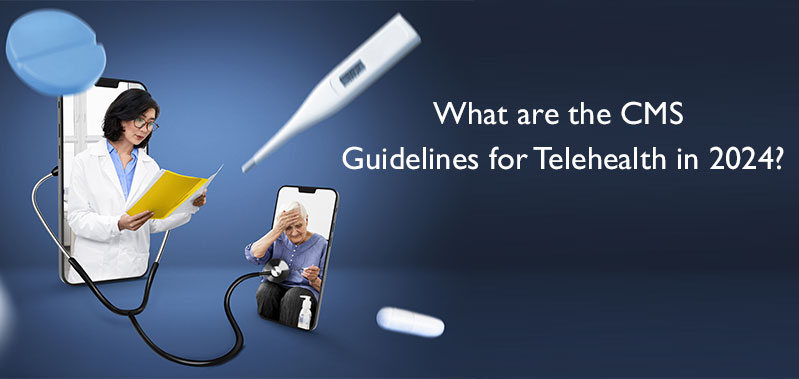
What are the CMS Guidelines for Telehealth in 2024?
As healthcare evolves, so do the policies that shape how care is delivered. Telehealth, a major pillar of modern healthcare, has undergone extensive regulatory updates by the Centers for Medicare & Medicaid Services (CMS) in response to technological advancements and changing patient needs. In 2024,...
View More

Avoid Penalties: Best Practices for Complying with HIPAA, CMS, and TCPA in
Healthcare providers and organizations need to navigate the intricate web of compliance rules with caution while exchanging information via email and text messaging in the rapidly evolving modern world. Serious financial fines, reputational harm, and possible legal actions may result from noncomplia...
View More

Strategies for Staying Updated and Compliant with the Latest ICD-10-CM Codi
These guidelines have been approved by the four organizations that make up the Cooperating Parties for the ICD-10-CM: the American Hospital Association (AHA), the American Health Information Management Association (AHIMA), CMS, and NCHS. These guidelines are a set of rules that have been developed t...
View More
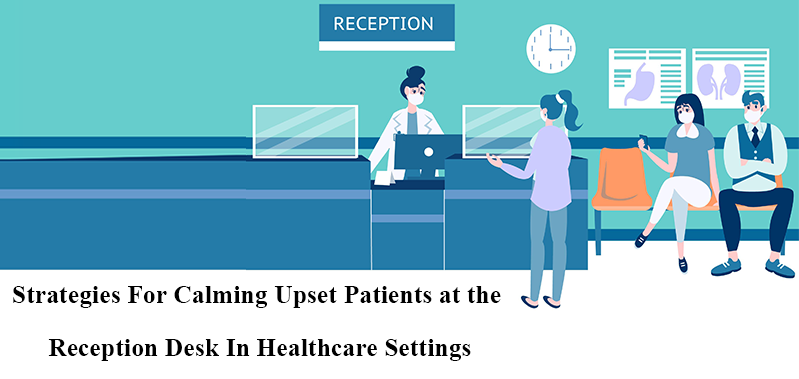
Strategies, for Calming Upset Patients at the Reception Desk, in Healthcare
The reception area in healthcare facilities is the interaction point for patients. It's common for patients to express their frustrations there when feeling anxious, in pain, or upset. For receptionists, managing these situations with poise and professionalism can be key in calming tempers and a...
View More
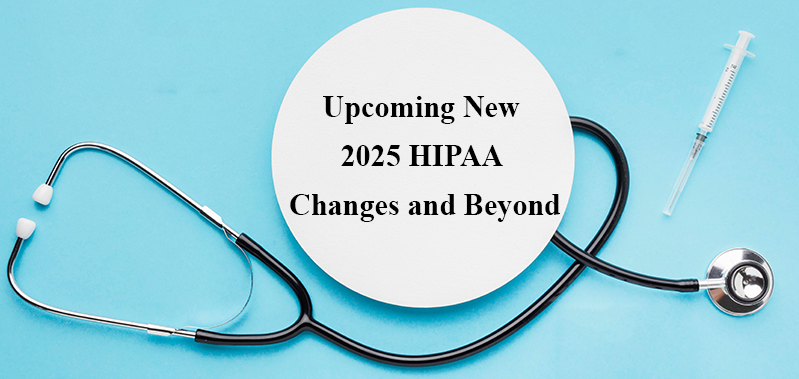
Upcoming New 2025 HIPAA Changes and Beyond!
The healthcare industry has always been one of the most regulated sectors, adhering to all the rules and regulations. Compliance is crucial to ensure the privacy and security of patient information. For healthcare professionals, staying updated on changes to the Health Insurance Portability and Acco...
View More

Top Skills and Certifications Required for HIPAA Compliance Officers in 202
The role of a Health Insurance Portability and Accountability Act Compliance Officer is of utmost importance in the current healthcare scenario. Due to the continuous evolution of regulations and the risk landscape, organizations should ensure that people lead the structural elements of compliance p...
View More

Top 5 Tips for FDA 21 CFR Part 11 Compliance
Compliance with 21 CFR Part 11, which governs electronic records and electronic signatures, is critical for organizations in industries regulated by the FDA, particularly pharmaceuticals, biotechnology, and medical device companies. Ensuring adherence to these regulations guarantees data integrity, ...
View More

Impact of 2025 ICD-10-CM Code Updates on Medical Billing and Coding
As the healthcare landscape continues to evolve, so too does the coding system that underpins medical billing and reimbursement. The International Classification of Diseases, Tenth Revision, Clinical Modification (ICD-10-CM) is a vital framework for accurately documenting patient diagnoses and treat...
View More
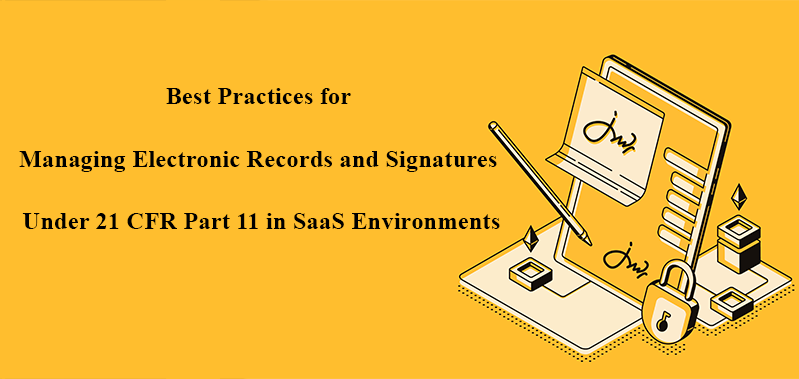
Best Practices for Managing Electronic Records and Signatures Under 21 CFR
In today’s rapidly evolving digital landscape, software-as-a-service (SaaS) platforms have become a cornerstone for many organizations, offering scalability, flexibility, and cost-efficiency. However, for companies in regulated industries such as pharmaceuticals, biotechnology, and medical devices...
View More

Exploring the Impact of Artificial Intelligence on the Food Supply Chain To
The food supply chain is a complex web of interconnected processes that begins with the production of raw materials and extends through processing, distribution, and retail to the consumer. It’s an intricate system, involving multiple stakeholders, and has become increasingly globalized in recent ...
View More
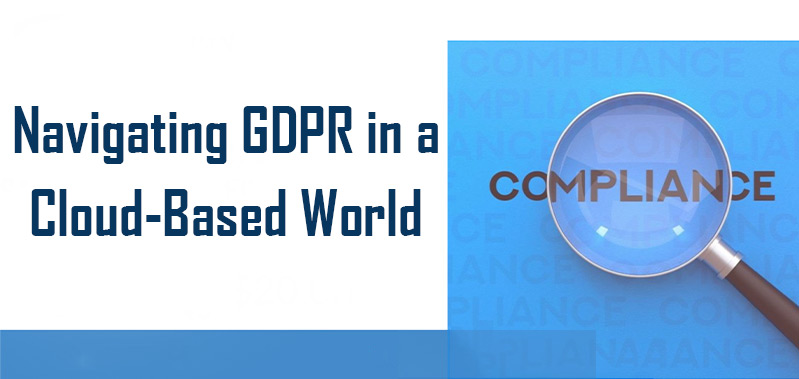
Navigating GDPR in a Cloud-Based World
In today’s rapidly evolving digital landscape, the reliance on cloud-based technologies has become a cornerstone for businesses, particularly Software as a Service (SaaS) companies. However, as organizations continue to migrate their operations and data to the cloud, ensuring compliance with globa...
View More
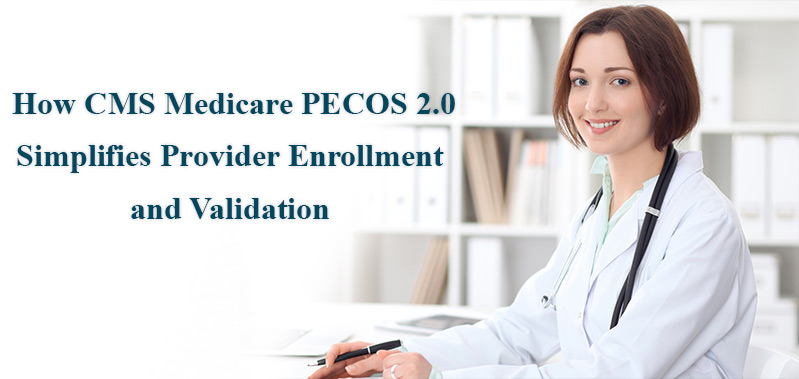
How CMS Medicare PECOS 2.0 Simplifies Provider Enrollment and Validation
The Centers for Medicare & Medicaid Services (CMS) has introduced an upgraded version of its Provider, Enrollment, Chain, and Ownership System (PECOS), known as PECOS 2.0. This enhancement is designed to streamline provider enrollment and validation processes, making it more efficient for healthcare...
View More

Understanding the Impact of the Quality System Regulation Final Rule on Med
On January 21, 2024, the FDA issued a final rule updating its Quality System regulation Final Rule under 21 CFR Part 820, which focuses on current good manufacturing practices (CGMP) for medical device manufacturers. The revisions aim to more closely align these regulations with ISO 13485:2016, the ...
View More
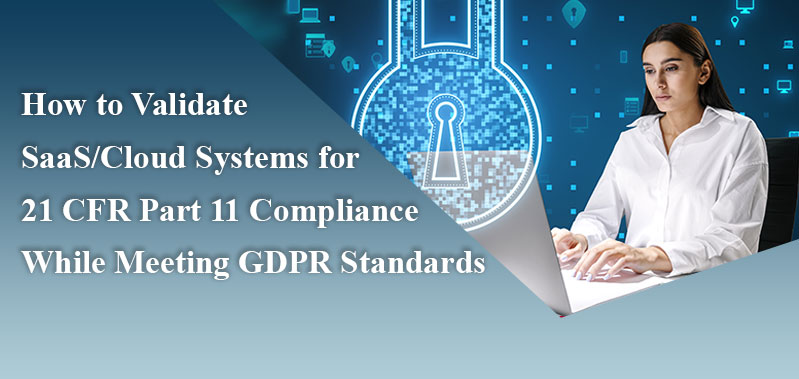
How to Validate SaaS Cloud Systems for 21 CFR Part 11 Compliance While Meet
In today's ever-changing landscape of technology, there are many new considerations for computer system validation (CSV) to ensure the nuances of each innovative component. For example, we now have more FDA-regulated companies starting to use cloud services and Software-as-a-Service (SaaS), Infr...
View More

Why You Should Have Update on USDA Final GMO Label Rule
Genetically modified foods (GMOs) have been part of our diets since the 1990s, but it was only last year that they began requiring labels. The U.S. Department of Agriculture (USDA) claims that the implementation of this labeling program has been “successful,” yet experts argue that consumers are...
View More

Top 5 Strategies for Mental Health in Healthcare and Nursing
Healthcare professionals, particularly nurses, face unique challenges that can significantly impact their mental health. The demanding nature of their work, which often involves long hours, emotional labor, and high-stakes situations, makes them particularly vulnerable to mental health issues. In re...
View More
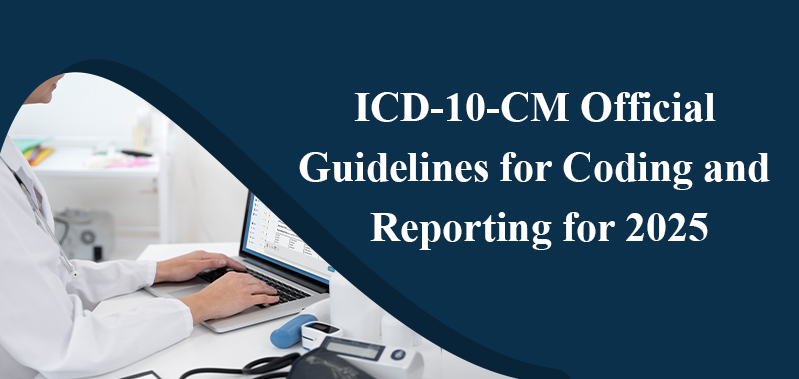
ICD-10-CM Official Guidelines for Coding and Reporting for 2025
Understanding the intricacies of ICD-10-CM coding can seem daunting, but it's a crucial aspect of healthcare documentation. The Centers for Medicare and Medicaid Services (CMS) and the National Center for Health Statistics (NCHS) have established guidelines to make this process smoother. These g...
View More

Preparation Tips for the 2025 ICD-10-CM Code Updates
The 2025 ICD-10-CM code updates are just around the corner, and healthcare professionals must be well-prepared to ensure a smooth transition. As these updates play a crucial role in medical billing, coding accuracy, and, ultimately, patient care, understanding and implementing the changes is vital. ...
View More

Impact of 2024 HCPCS Updates on Healthcare Providers
HCPCS stands for Healthcare Common Procedure Coding System, a standardized language for medical billing in the United States. It ensures the smooth processing of health insurance claims by Medicare and other insurers, facilitating clear communication between healthcare providers and payers. In order...
View More

The Importance of Supporting Healthcare Workers Mental Health
Since the COVID-19 pandemic started, everyone's mindset about our healthcare workers has changed, and healthcare workers are crucial for our society's well-being. Due to this, these dedicated professionals are facing intense demands that are affecting their mental health. A survey from 202...
View More
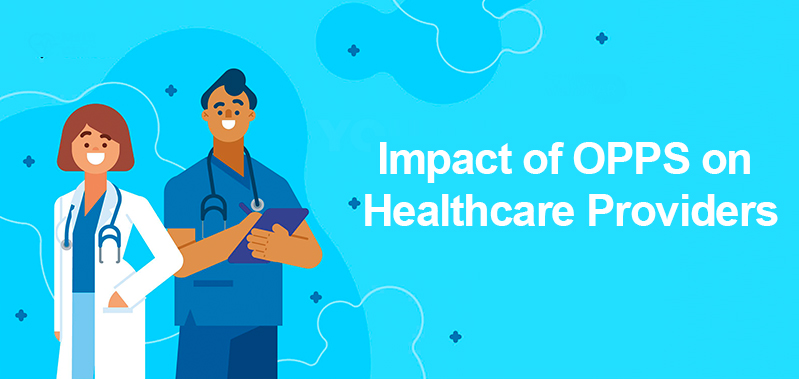
Impact of OPPS on Healthcare Providers
On November 2, 2021, the Centers for Medicare & Medicaid Services (CMS) announced the ASC/hospital outpatient prospective payment system final rule, emphasizing the administration's dedication to price transparency and empowering consumers with the information needed for informed healthcare deci...
View More

Pharmaceutical Continuous Manufacturing: What�s Next For Industry?
The pharmaceutical industry is experiencing a significant shift towards continuous manufacturing (CM), moving away from traditional batch processing. Continuous manufacturing operates without interruption, potentially increasing efficiency, agility, and flexibility in drug production. This can resul...
View More

FDA Guide to Inspections of Pharmaceutical Quality Control Laboratories
Do you know the slightest misstep can lead to huge altering consequences in the pharmaceutical industry? Quality control (QC) laboratories in the pharmaceutical industry play a critical role in ensuring that drugs meet stringent standards for safety, efficacy, and quality. In this guide, we outline ...
View More
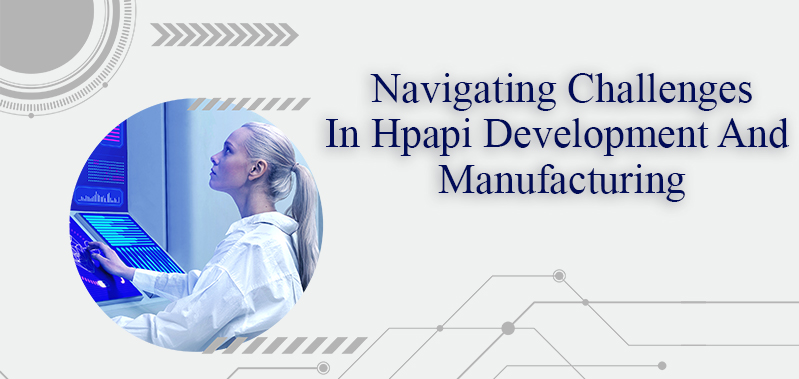
Navigating Challenges In HPAPI Development And Manufacturing
Highly potent active pharmaceutical ingredients (HPAPIs) transform targeted therapy, driving innovation across oncology, diabetes management, and central nervous system disorders. Representing over 30% of the drug development pipeline, HPAPIs are pivotal in modern medicine due to their unparalleled ...
View More

How Pharma Companies Can Gain a Competitive Advantage With Efficient Mainte
The global pharmaceutical packaging market was valued at USD 45.07 billion in 2023, according to Statista. The industry is projected to grow at a compound annual growth rate (CAGR) of 6.58%, reaching an estimated value of USD 65.63 billion by 2028. Given this steady market growth, it is crucial for ...
View More

Medicare Program - Medicare Prescription Drug Benefit Program
There are many changes that the Centers for Medicare & Medicaid Services (CMS) passed last year, and there are many changes that will be in effect from next year. One of the crucial changes added in the Part D Prescription Drug Benefit Manual (PDBM) was introduced in June 2024. CMS Medicare has revi...
View More
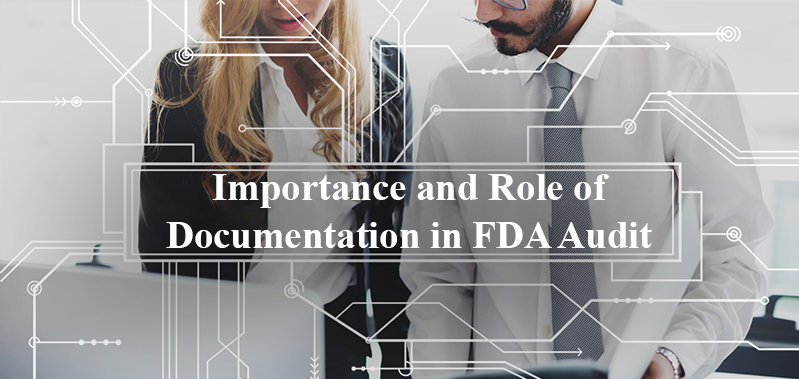
Importance and Role of Documentation in FDA Audit
In the pharmaceutical industry, FDA audits are a very daunting process that requires truthfulness. The FDA has intensified its surveillance of regulated industries. Although companies are expected to meet their regulatory requirements, the manner in which company staff handle an audit and interact w...
View More
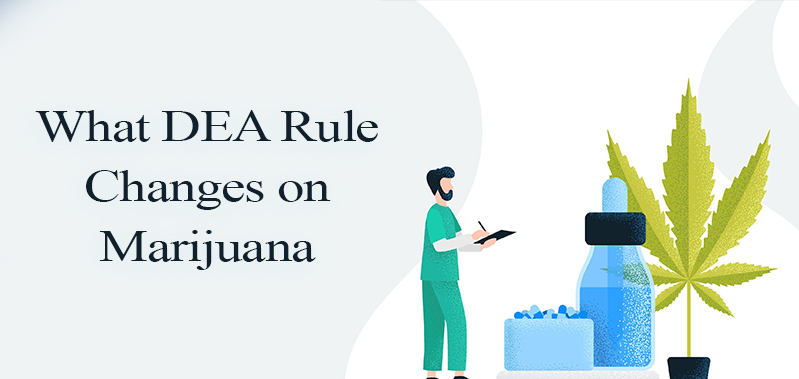
What DEA Rule changes on Marijuana
Marijuana is illegal under federal law and is classified as a Schedule 1 drug under the Controlled Substances Act (CSA). However, 23 states and the District of Columbia have legalized its use for medicinal purposes. This difference between federal and state laws puts doctors and patients in a tough ...
View More

Complying With Evolving Cannabis Law In Hospitals And Healthcare Education
Some states have legalized marijuana for recreational or medical use, but there are still legal issues in healthcare and other industries because marijuana is illegal under federal law. This conflict between state and federal laws is especially important when it comes to patients using marijuana in ...
View More
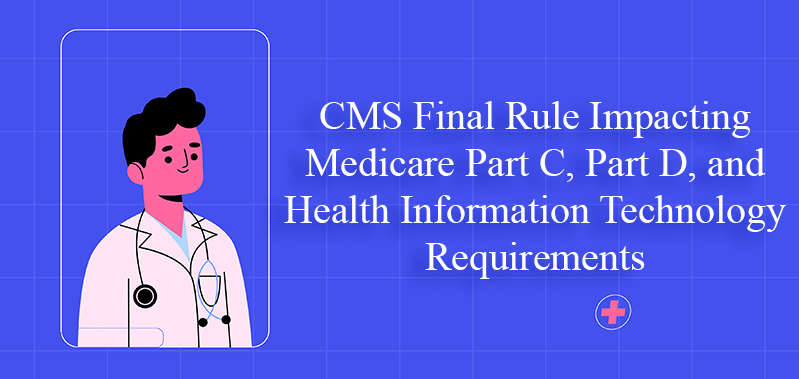
CMS Final Rule Impacting Medicare Part C, Part D, and Health Information Te
The Centers for Medicare and Medicaid Services (CMS) has made significant changes to Medicare Advantage (MA) and Medicare Part D plans. These changes are outlined in the Contract Year 2025 Final Rule, published on April 23 and effective June 3, 2024. This rule updates existing policies, introduces n...
View More

Medicare Drug Price Negotiation Program
Healthcare costs in the United States have been a topic of intense debate and concern for decades, with prescription drug prices being a particularly contentious issue. The introduction of the Medicare Drug Price Negotiation Program represents a significant step towards addressing this problem, aimi...
View More

Medicare Advantage Two-Midnight Rule Contributing To Higher Outpatient Reve
The expansion of the two-midnight rule by the Centers for Medicare and Medicaid Services (CMS) to include Medicare Advantage plans has led to increased inpatient volumes and revenue growth in the first quarter of the year, according to a report by Strata Decision Technology.
This rule impacts inp...
View More

Navigating New Challenges in Medicare Rx Drug Billing
As people in the United States grow older at an incredible rate, with 10,000 new seniors every day, healthcare providers are facing significant challenges with Medicare billing. The Inflation Reduction Act (IRA) helps by limiting Medicare Part D costs, but it also complicates things. Providers need ...
View More
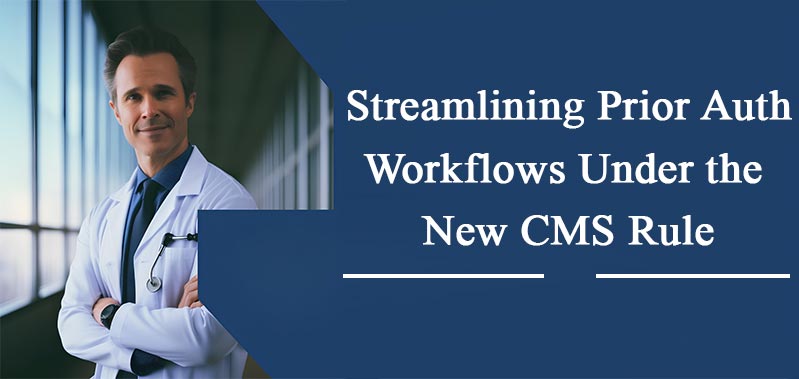
Streamlining Prior Auth Workflows Under the New CMS Rule
CMS has finalized a new rule aimed at shortening prior authorization timelines and streamlining processes to remove barriers to patient care, according to a press release. The rule mandates that prior authorization decisions be sent within 72 hours for urgent requests and 7 days for standard request...
View More

2024 Elections and Health Policy What You Need to Know
Election changes everything from policies to people's lifestyles, and as you know, elections are everywhere in the United States. However, different political parties come up with different agenda and healthcare is one of their top priorities. Healthcare issues are one of the major concerns at b...
View More
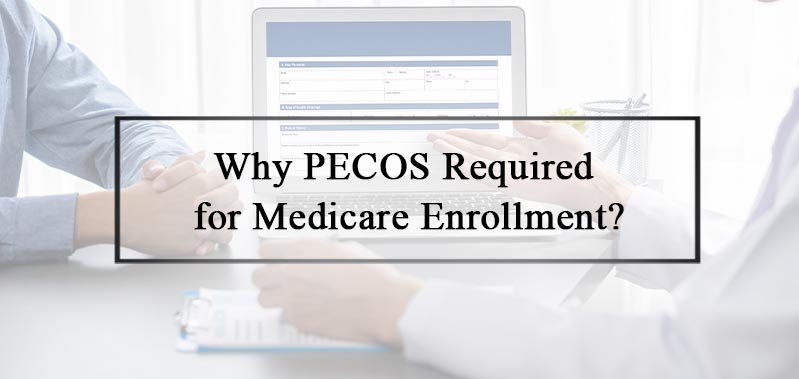
Why PECOS Required for Medicare Enrollment?
If you wonder how to enroll in the Medicare program, you should be informed that there are two ways to enroll. The first one is by completing the Medicare paper application form appropriately, and the second one is PECOS. PECOS stands for Provider, Enrollment, Chain, and Ownership System, and it all...
View More

Credentialing Webinars
Provider credentialing is essential for ensuring that healthcare providers meet necessary standards. Here, we have elaborated on different elements of credentialing that will help healthcare professionals navigate several challenges related to credentialing.
Hospital DEI: Bias in Credentialing
...
View More
BEHAVIOR WHAT CODES OF CONDUCT CAN DO copy_1717148285.jpg)
Professional (Mis) Behavior: What Codes Of Conduct Can Do
When creating an annual budget, addressing workplace ethics is often overlooked. However, the Association of Certified Fraud Examiners (ACFE) reports that businesses can lose up to five percent of annual revenue to fraud. For large companies, corruption is a major issue, while smaller businesses fac...
View More
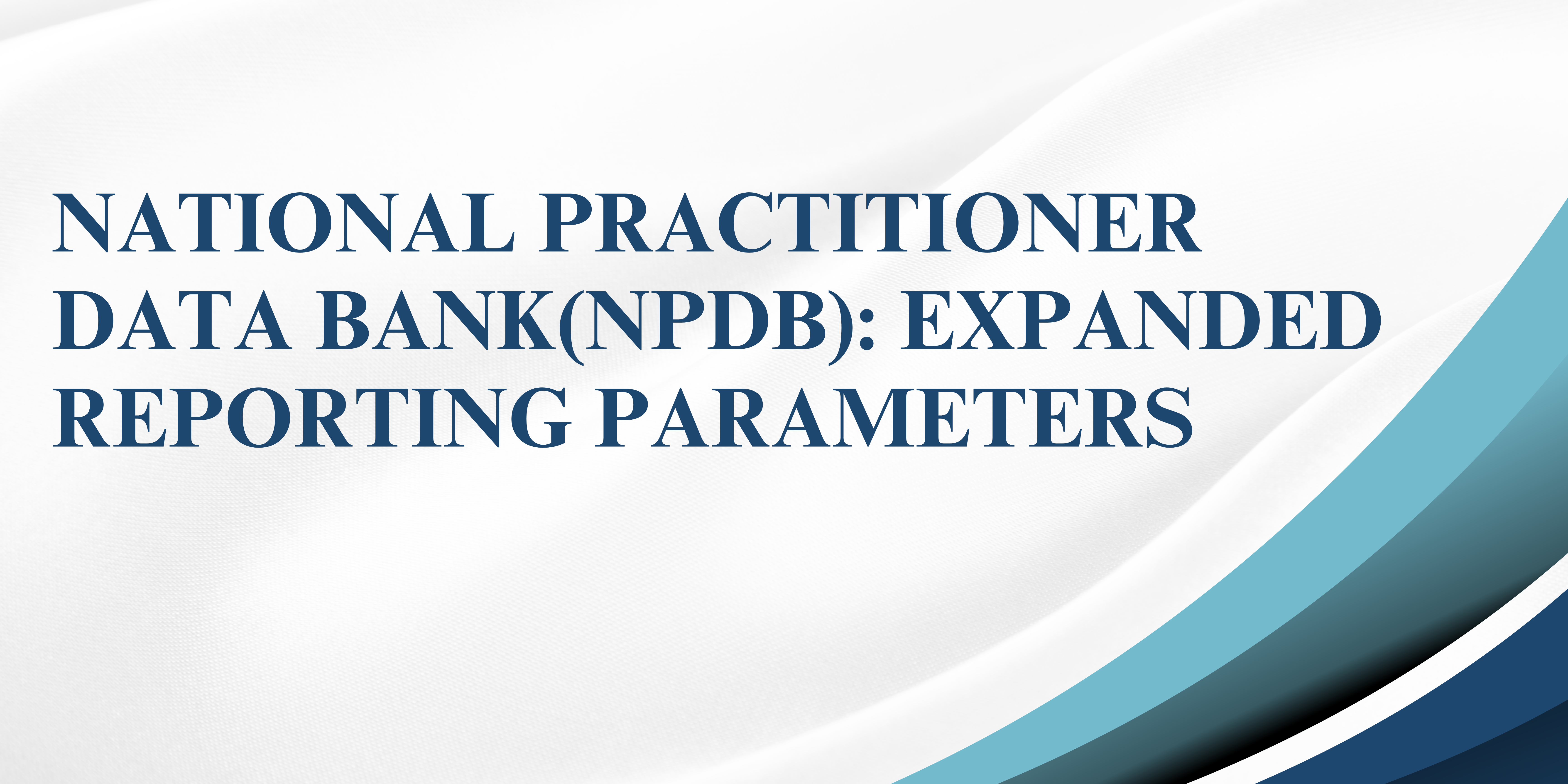
NATIONAL PRACTITIONER DATA BANK(NPDB): EXPANDED REPORTING PARAMETERS
The Health Care Quality Improvement Act (HCQIA) of 1986 created the National Practitioner Data Bank (NPDB), which collects essential information about healthcare providers, such as disciplinary actions and malpractice claims. Congress established HCQIA to address the rise in medical malpractice case...
View More

New Privacy Requirements Imposed on Providers by Reproductive Healthcare Ru
The HIPAA Privacy Rule just got a significant upgrade, especially when it comes to safeguarding reproductive health information. Now, anyone handling this sensitive data needs to get up to speed with the latest changes. These include stricter rules on how PHI can be used and shared, a new requiremen...
View More
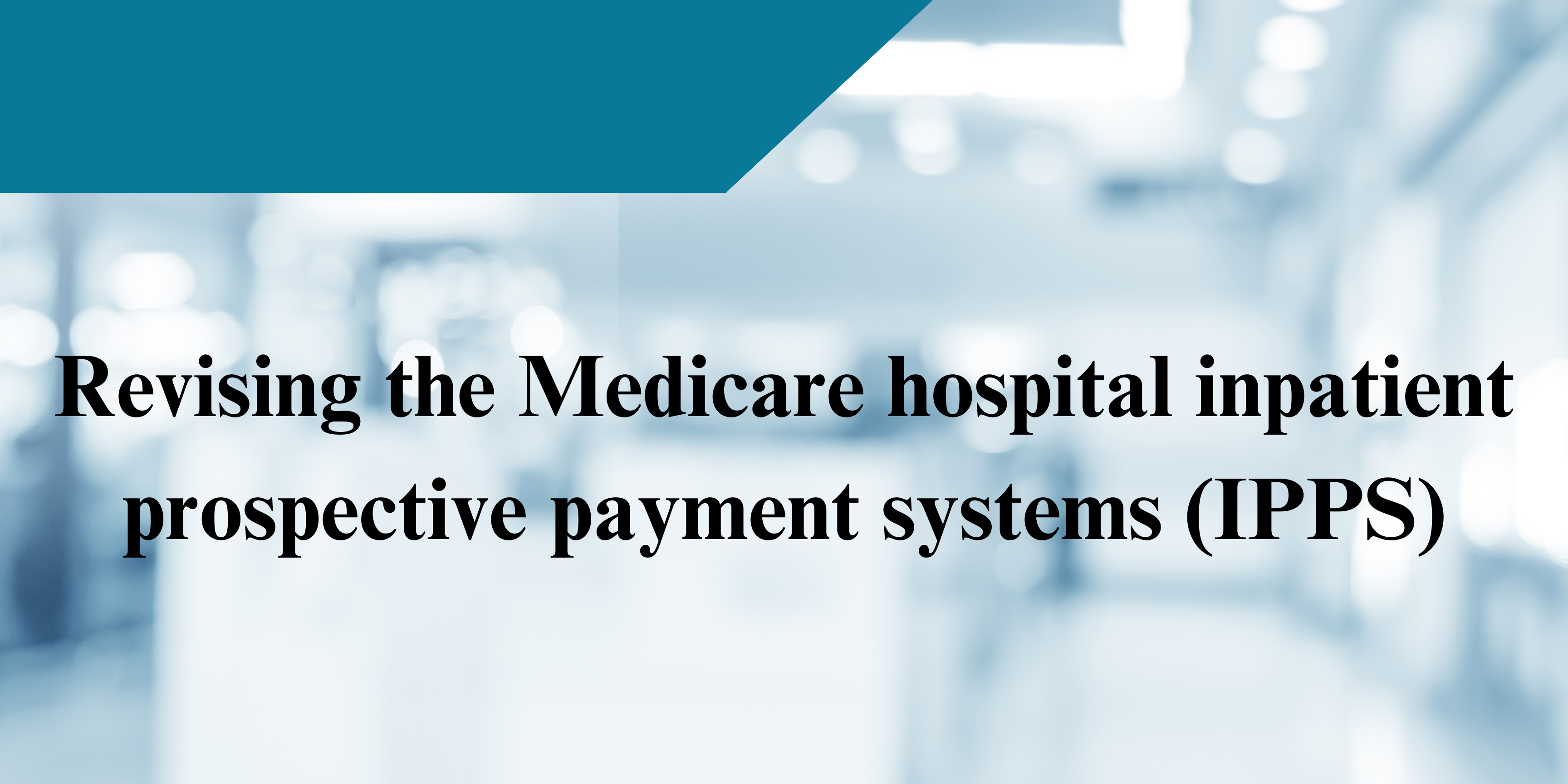
Revising The Medicare Hospital Inpatient Prospective Payment Systems (IPPS)
On April 10, the Centers for Medicare & Medicaid Services (CMS) issued the proposed rule (CMS-1808-P) for the Inpatient Prospective Payment System (IPPS) for Fiscal Year 2025. This proposed rule includes updates to payment policies and rates for acute care inpatient hospital services under Medicare....
View More
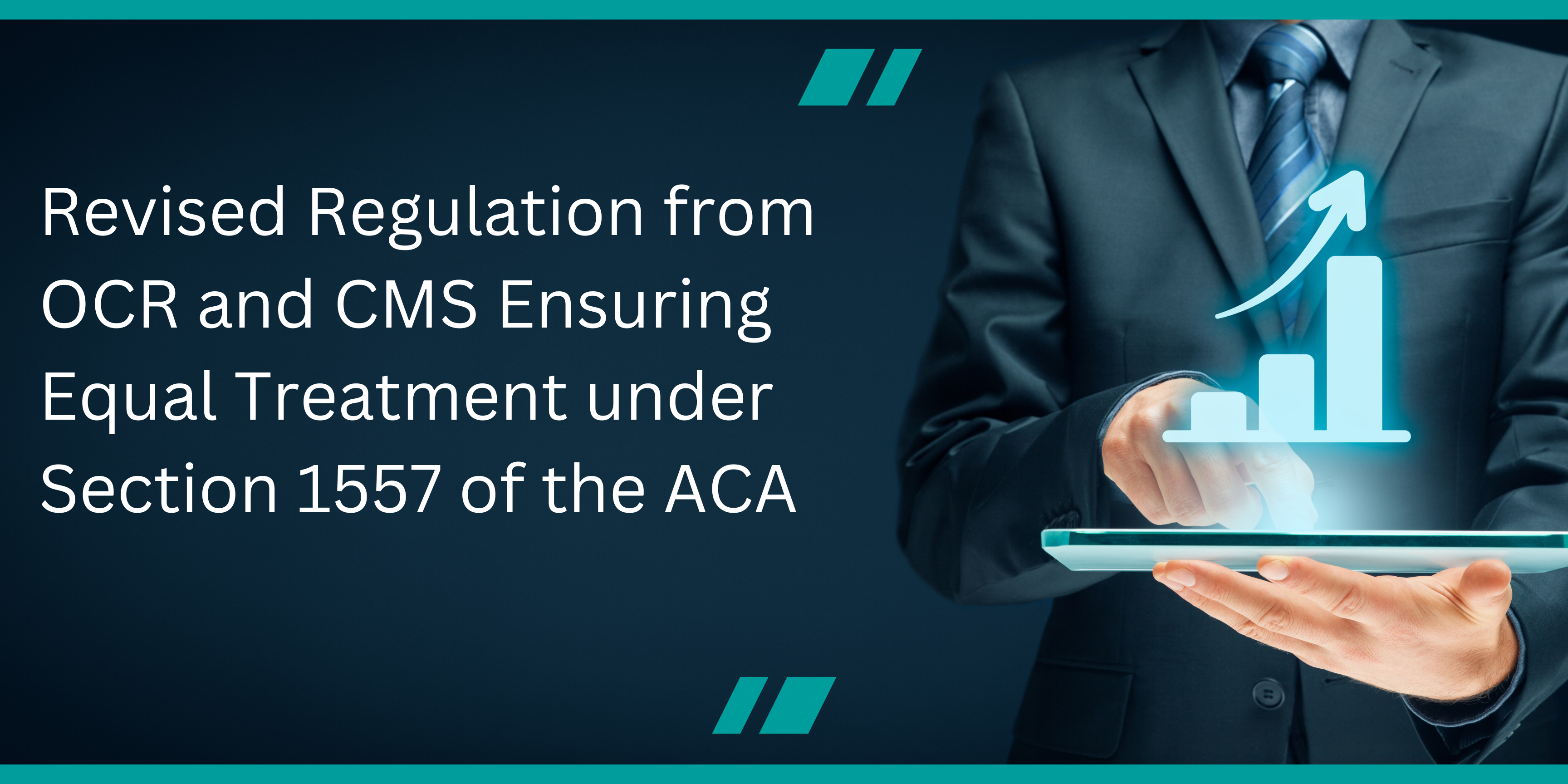
Revised Regulation from OCR and CMS Ensuring Equal Treatment under Section
The U.S. Department of Health and Human Services (HHS), along with the Office for Civil Rights (OCR) and the Centers for Medicare & Medicaid Services (CMS), made a big decision on April 26, 2024. They created a final rule under Section 1557 of the Affordable Care Act (ACA). This rule is about stoppi...
View More
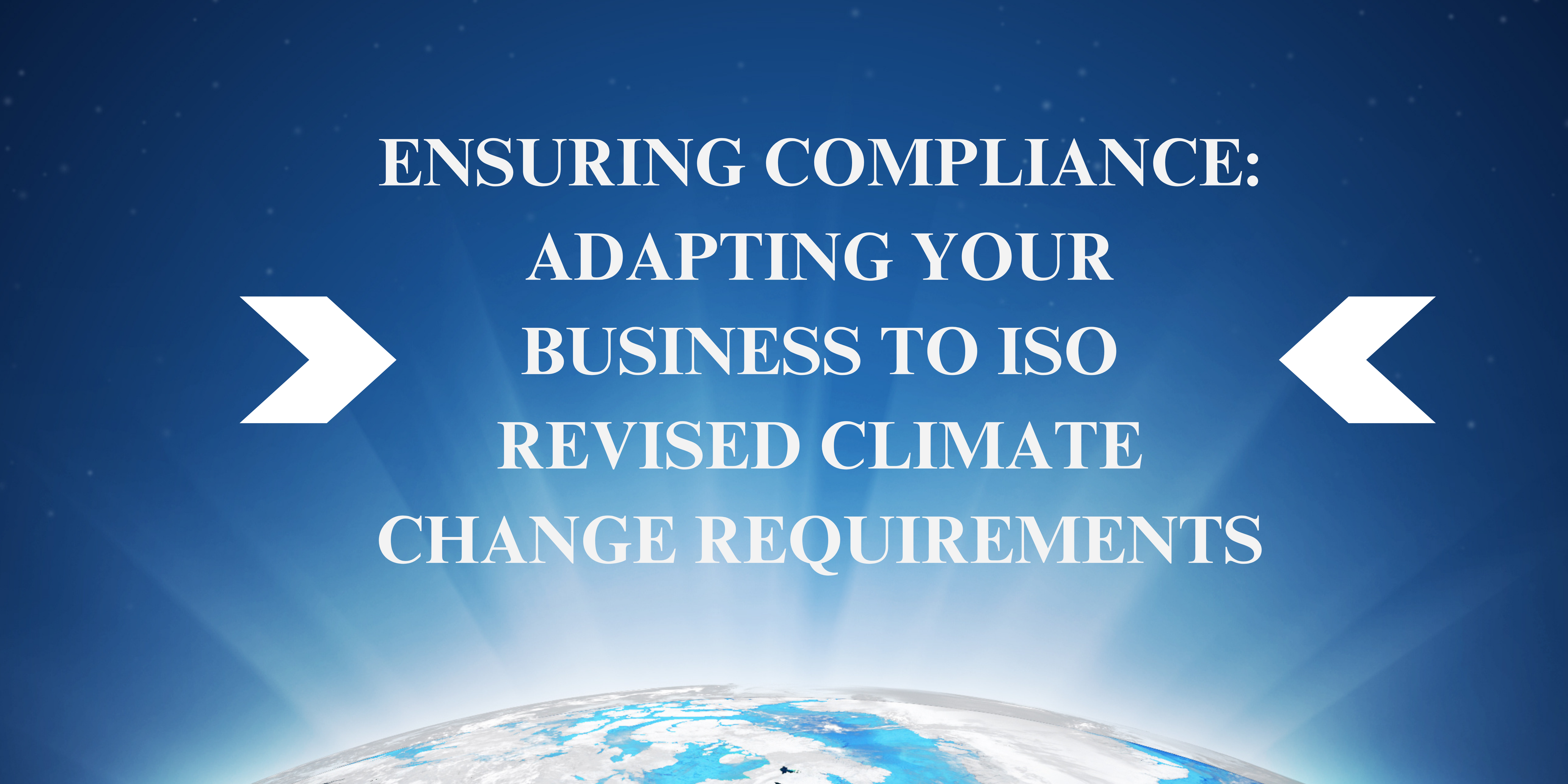
Ensuring Compliance Adapting Your Business to ISOs Revised Climate Change R
Climate change is no longer a concern reserved for environmentalists; it has become a critical issue for businesses across all sectors. The discourse surrounding greenhouse gases, corporate carbon footprints, global warming, and their impact on the planet has been ongoing for decades, involving dive...
View More
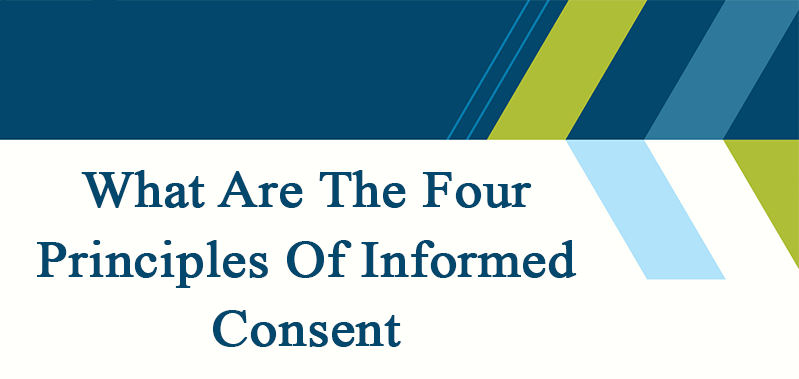
What are the 4 Principles of Informed Consent
Imagine standing at a crossroads, with multiple paths before you, each leading to a different outcome. Informed consent is your map and compass, guiding you through every medical decision with clarity and confidence. Informed consent is a keystone of ethical medical practice, staying on the principl...
View More
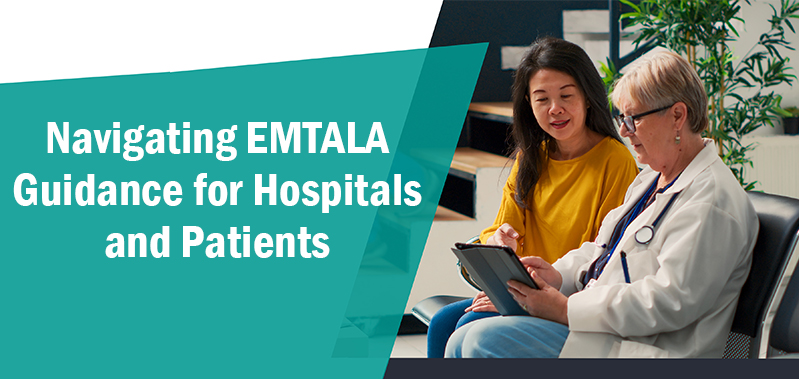
Navigating EMTALA: Guidance for Hospitals and Patients
EMTALA, the Emergency Medical Treatment and Labor Act enacted in 1986, stands as a pillar of healthcare accessibility in the United States. It ensures that emergency medical facilities must provide treatment and stabilization to anyone seeking care, irrespective of their ability to pay or insurance ...
View More
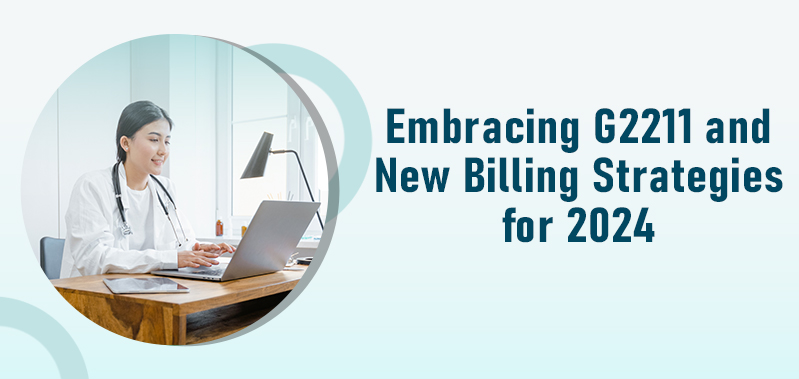
Embracing G2211 and New Billing Strategies for 2024
Imagine a doctor's visit where the physician spends a lot of time with you, really digging into your health needs. That's what HCPCS add-on code G2211 and New 2024 Billing Opportunities are all about. It reflects the time, effort, and resources doctors put into visits where they build long-t...
View More
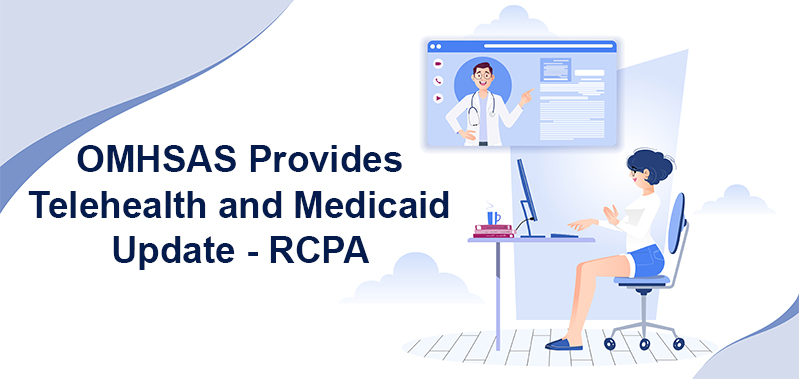
OMHSAS Provides Telehealth and Medicaid Update - RCPA
In the wake of the COVID-19 pandemic, the landscape of healthcare delivery has undergone a profound transformation. Among the most notable shifts is the widespread adoption of telehealth and Medicaid services. The Office of Mental Health and Substance Abuse Services (OMHSAS), in conjunction with the...
View More
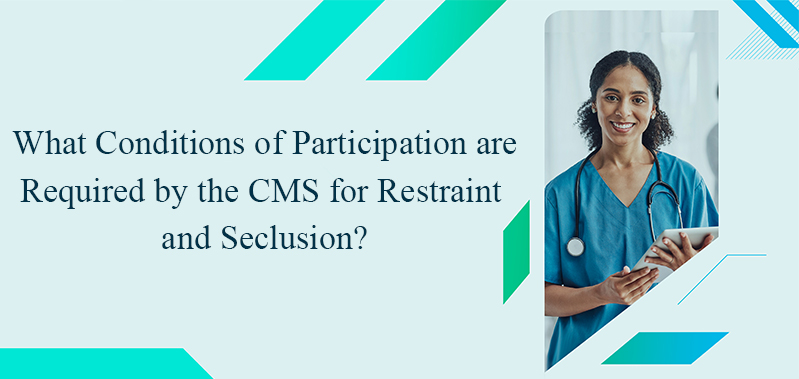
What Conditions of Participation are Required by the CMS for Restraint and
Hospitals are required to comply with the Federal requirements set forth in the Medicare Conditions of Participation (CoP) in order to receive Medicare/Medicaid payment. The goal of a hospital survey is to determine if the hospital complies with the CoP set forth in 42 CFR Part 482. Certification of...
View More
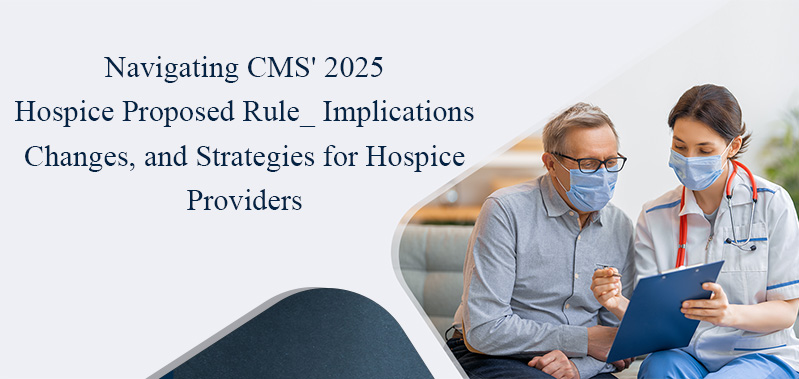
Navigating CMS 2025 Hospice Proposed Rule: Implications, Changes, and Strat
As the healthcare field keeps changing, hospice providers need to plan carefully to handle new rules and make their operations more efficient. The recent announcement from the U.S. Centers for Medicare & Medicaid Services (CMS) about how they'll pay hospices in 2025 brings both challenges and ch...
View More
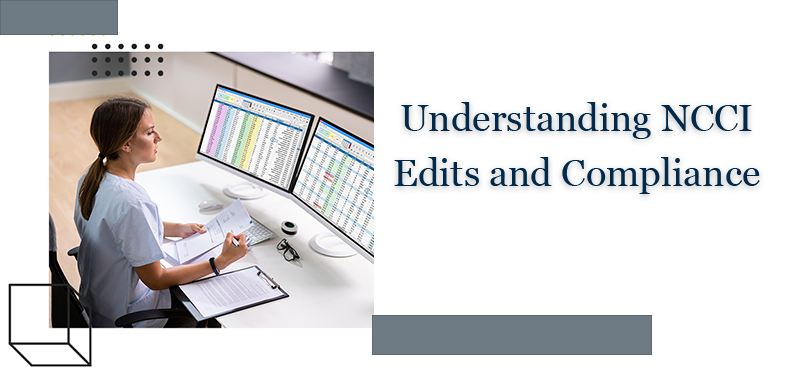
Understanding NCCI Edits and Compliance
CMS created the NCCI program to help ensure that Medicare Part B claims are coded correctly across the country. CMS is in charge of the NCCI program and makes all the decisions about what it includes. To develop its coding policies, CMS looks at the rules laid out in the American Medical Association...
View More
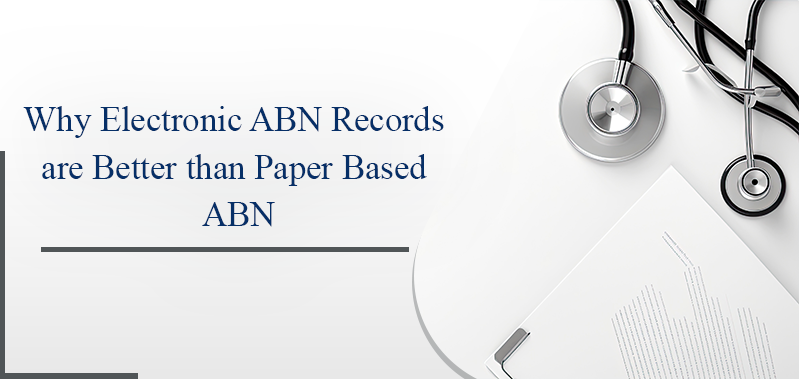
Why Electronic ABN Records Are Better Than Paper-Based ABN
The term ABN might be familiar to you; adhering to vital regulations is critical when serving Medicare patients. Inadequate knowledge may result in costly errors. Insurance payers increasingly shift responsibility to patients, warranting meticulous attention before procedures. It's imperative to...
View More

Virtual Specialty Healthcare Next Frontier
In the wake of the COVID-19 pandemic, the dominant branch of virtual health has emerged as a beacon of transformative potential in the healthcare landscape. Despite being considered a disruptor for over a decade, the adoption of virtual health technologies has needed to be faster. However, the curre...
View More

Physician Pay Fell 2.4% In 2022 With Rising Levels Of Burnout
When we think about the future of businesses, we often anticipate a steady increase in income and revenue over time, and medical practices are no different. However, a recent survey sheds light on a concerning trend: when adjusted for inflation, Medicare physician pay has actually decreased by 22 pe...
View More
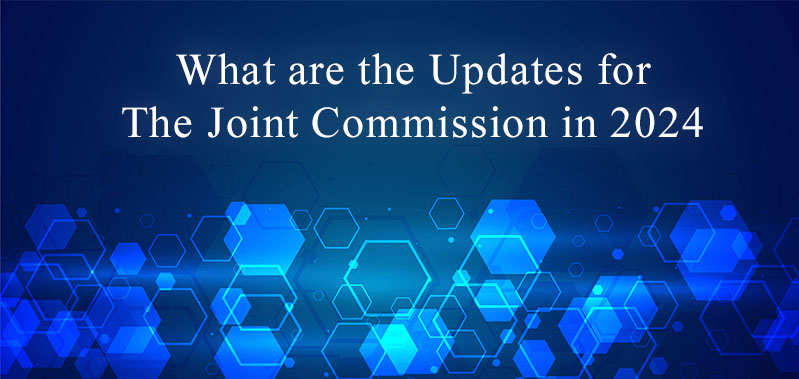
What are the Updates for The Joint Commission in 2024
In the ever-evolving landscape of healthcare quality assurance, one organization stands at the forefront of ensuring excellence in patient care that is the Joint Commission. With its latest announcement of cutting over 200 standards across its accreditation programs, The Joint Commission will revolu...
View More
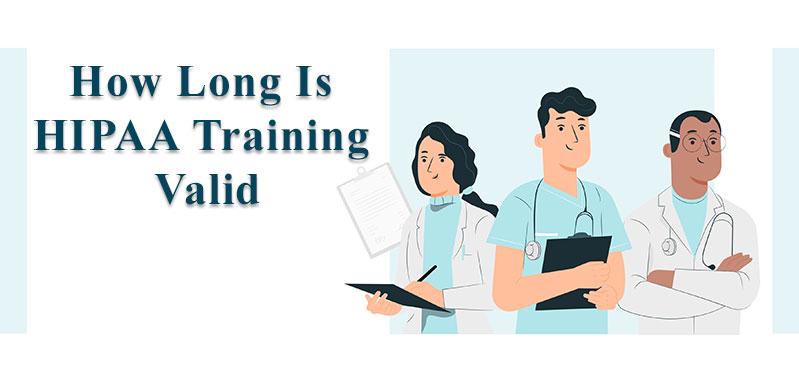
How Long Is HIPAA Training Valid
HIPAA training is an essential mandate governed by the Security and Privacy Rule under the Health Insurance Portability and Accountability Act (HIPAA). Compliance with HIPAA regulations demands organizations prioritize training and allocating resources to equip employees with the necessary skills, k...
View More
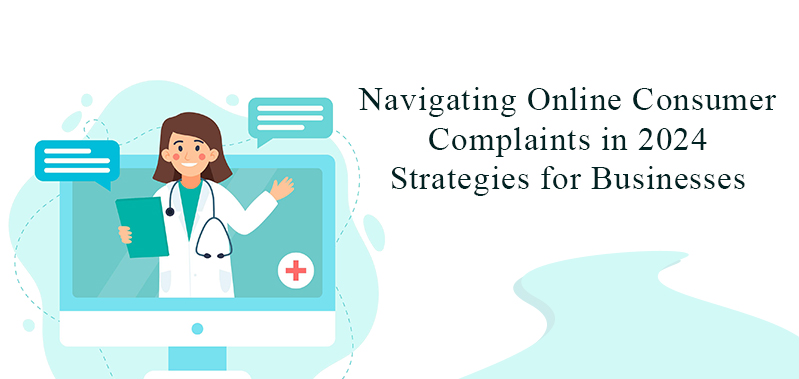
Navigating Online Consumer Complaints in 2024 - Strategies for Businesses
In the dynamic healthcare environment, managing grievances and complaints in 2024 is crucial for various purposes. Hospitals have rules about how they handle patient complaints, called grievances.
As we know, hospitals play a vital role in protecting and promoting the rights of patients. It's...
View More

Avoid Common Rejections And Errors With 855 Form Submissions
The Centers for Medicare & Medicaid Services (CMS) are taking steps to improve oversight of the Medicare program. They've recently updated enrollment regulations and policies, aiming for greater transparency and accountability. Key changes include updates to Medicare provider and supplier enroll...
View More
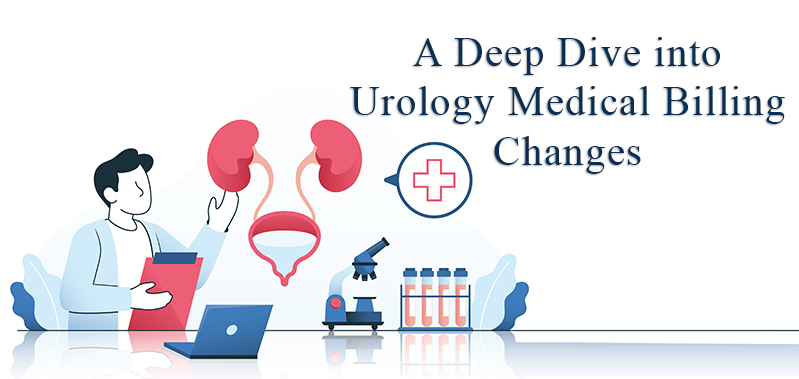
A Deep Dive into Urology Medical Billing Changes
Urological disorders affect millions of individuals worldwide, requiring advanced treatment plans and precise medical coding for accurate billing. As a healthcare specialty, urology stands out for its coding and billing complexities due to the many conditions and terminologies involved. Recent updat...
View More
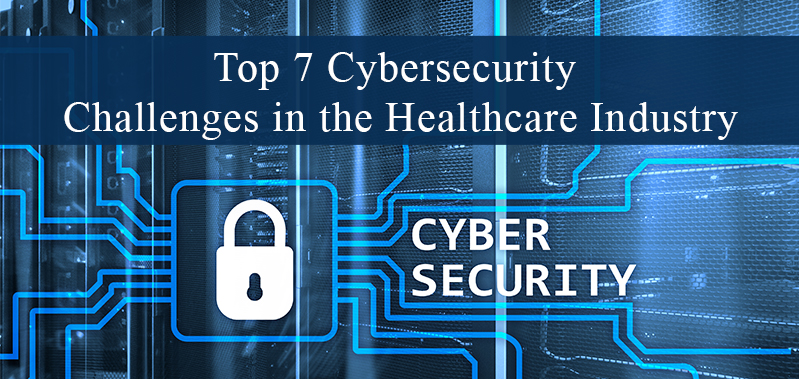
Top 7 Cybersecurity Challenges in the Healthcare Industry
Compromising cybersecurity could be life-threatening! This statement might trigger your consciousness. Indeed, it's true. In 2023, healthcare hacking incidents compromised over 124 million records, accounting for 93.5% of the total breached records for the year. The average number of healthcare ...
View More
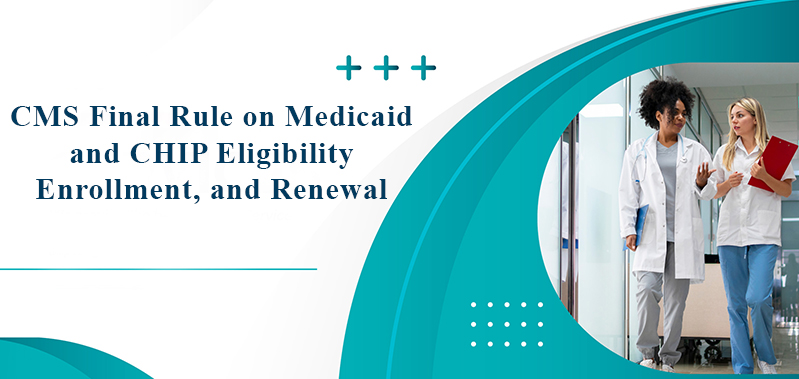
CMS Final Rule on Medicaid and CHIP Eligibility, Enrollment, and Renewal
The Centers for Medicare & Medicaid Services (CMS) recently issued Final Rules outlining the changes, updates, or clarifications to the Medicaid and Children's Health Insurance Program (CHIP) regulations. These rules typically address various aspects of these programs, including eligibility, enr...
View More

CMS Updated Guidelines on Ligature Risk
On July 17, the Centers for Medicare & Medicaid Services (CMS) issued revised instructions for state surveyors to evaluate ligature risk in hospital settings. This guidance explicitly addresses measures aimed at safeguarding patients vulnerable to self-harm or harm to others within their surrounding...
View More
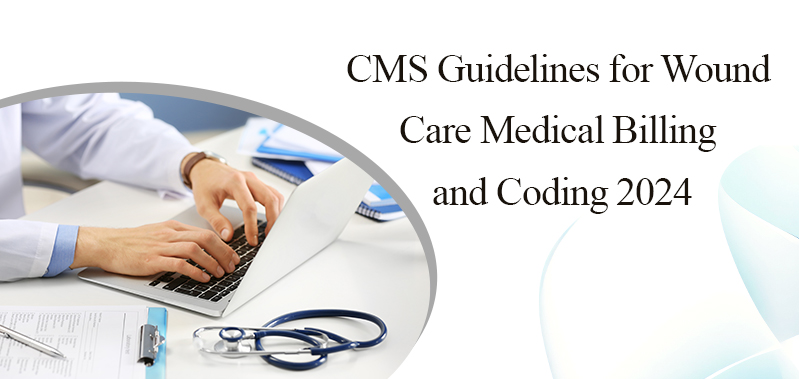
CMS Guidelines for Wound Care
Wound care is an essential part of healthcare, especially for patients with chronic wounds, surgical incisions, or pressure ulcers. The Centers for Medicare & Medicaid Services (CMS) has specific guidelines that healthcare providers must follow to ensure proper treatment and reimbursement. These gui...
View More

Encounter for Medication Refill ICD-10
When a new year begins, coding professionals often find themselves preparing for the upcoming coding changes. Whether you're an experienced coder or looking to navigate the newest updates, this article provides a comprehensive look at the most significant ICD-10 coding changes, specifically focu...
View More
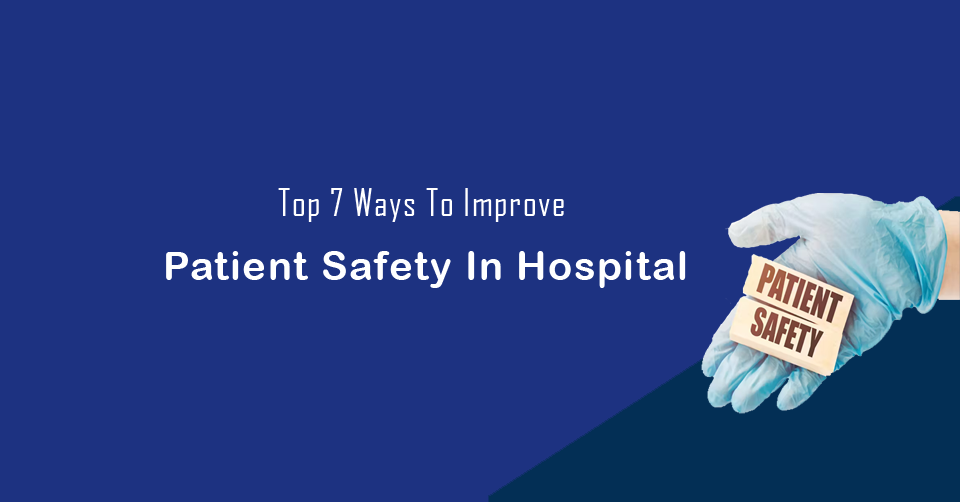
Top 7 Ways To Improve Patient Safety In Hospital
As a part of the vast U.S. healthcare system, your every single work impacts other's health. That's why your interest in patient safety landed you on this page. As a healthcare provider, it's important for you to prioritize patients' well-being and safety. The healthcare community is...
View More

Understand What is the Purpose of the CMS Conditions of Participation CoPs
CMS is a prominent organization that looks after healthcare programs like Medicare and Medicaid. They create a list of rules called Conditions of Participation (CoPs) and Conditions for Coverage (CFCs). These rules are like a checklist that hospitals and clinics must follow to be part of these progr...
View More
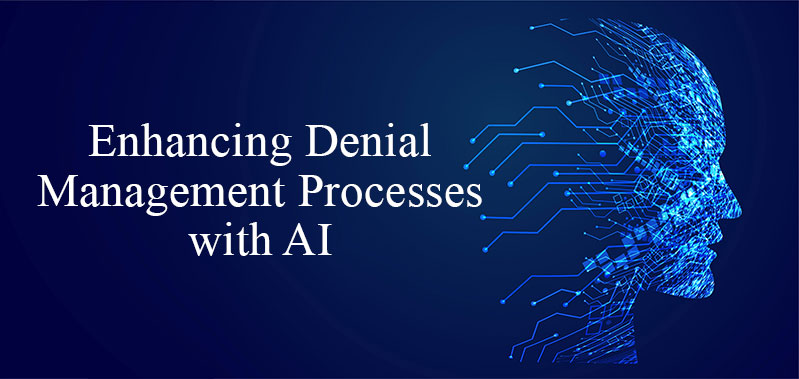
Enhancing Denial Management Processes with AI
Artificial Intelligence has become a game changer in various industries, and from last year's emergence, it has found its way into healthcare. However, the healthcare industry has been tackling several challenges, including medical coding and billing intricacies, workforce shortage, and more. Cl...
View More
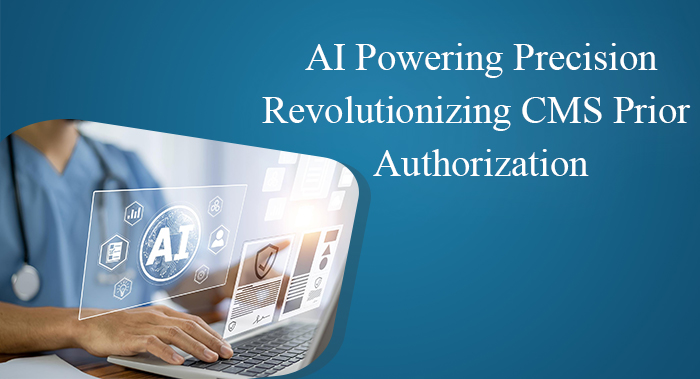
AI Powering Precision - Main Role of Artificial Intelligence in CMS Prior A
In October 2023, the president decided on some rules for how artificial intelligence (AI) can be used in healthcare. This is important because AI can be a powerful tool, but we want to make sure it's used safely. Part of these rules focus on using AI responsibly in healthcare. This means making ...
View More
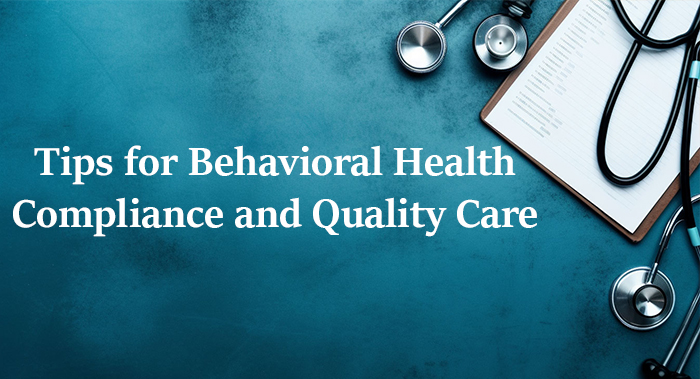
Common Tips for Behavioral Health Compliance and Quality Care
In healthcare organizations, it's really important to have a strong focus on following rules and guidelines. This is because a lot of what we do relies on the people working there and the way things are done. If we don't have consistent ways of doing things, there's more chance that thin...
View More

Top 5 Best Practices For Complete Documentation Of Injections And Infusions
Administering injections and infusions entails numerous complexities owing to the extensive CPT instructional notes, hierarchical regulations, and varying payer directives. Leveraging outsourced medical billing can mitigate the challenges surrounding the reporting of drug administration services. He...
View More
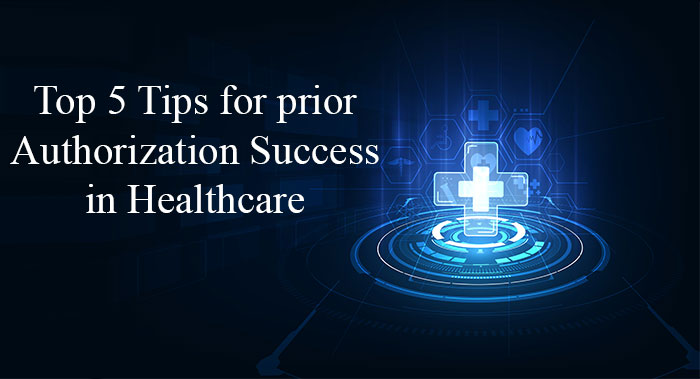
Top 5 Tips for Prior Authorization Success in Healthcare
Prior authorization, also known as precertification, predetermination, and pre-approval, is a health plan cost-control process in which healthcare providers such as hospitals or physicians obtain advance approval from the insurance plan to qualify the payment coverage for a specific treatment or ser...
View More

Understanding Trauma-Informed Care: Healing with Empathy and Insight
Many people go through difficult experiences in their lives. While some people don't have lasting problems, those who have been through many bad things over a long time might struggle more. This can lead to issues like using drugs or alcohol too much, mental health problems, and even physical he...
View More
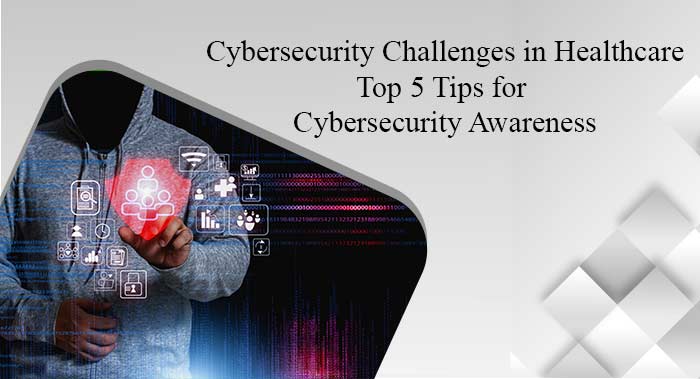
Cybersecurity Challenges in Healthcare: Top 5 Tips for Cybersecurity Awaren
The healthcare industry becomes the top target of cybercriminals, accounting for 17% of all data breaches between 2020 and 2021, the highest among any industry. Cybersecurity threats have no signs of slowing down as in March 2023, the Department of Health and Human Services’ Office for Civil Right...
View More

Top 5 Compliance Tips on HIPAA, Text Messaging, and Your Practice
After the pandemic, texting and telecommunications have become a convenient way to communicate for healthcare organizations and patients. More than 80% of Americans find text messaging efficient, affordable, and has better reach. While text messaging shares many benefits, it also comes with several ...
View More
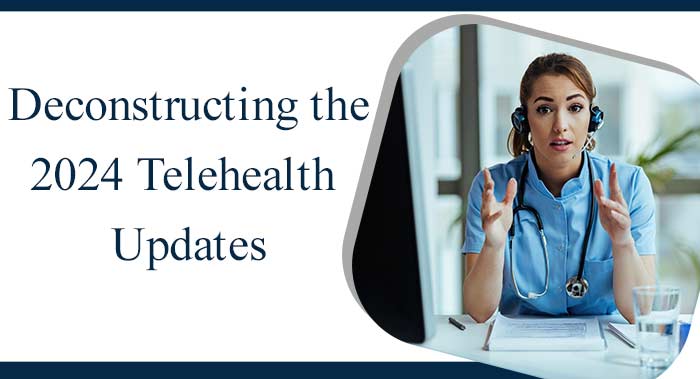
Deconstructing the 2024 Telehealth Updates
Imagine talking to your doctor from your couch instead of going to the office! That's telemedicine: video or phone calls for healthcare. It's great because it's convenient and more accessible, especially for specialists. It was a lifesaver during the pandemic, letting doctors and patient...
View More

Compliance Training for Healthcare Staff: Building a Culture of Accountabil
In the healthcare industry, compliance is the only culture that employees should understand. Correspondingly, accountability of the healthcare employees matters in order to prevent significant damage to the organization. However, there are abundant ways to train healthcare staff regarding building a...
View More

2024 Healthcare Compliance Trends: What Hospitals Need to Know
More than 60 million people across the nation are covered by the Centers for Medicare and Medicaid Services (CMS), and it plays a crucial role in offering healthcare services. If you oversee a long-term care facility, chances are you engage regularly with CMS in various transactions involving Medica...
View More
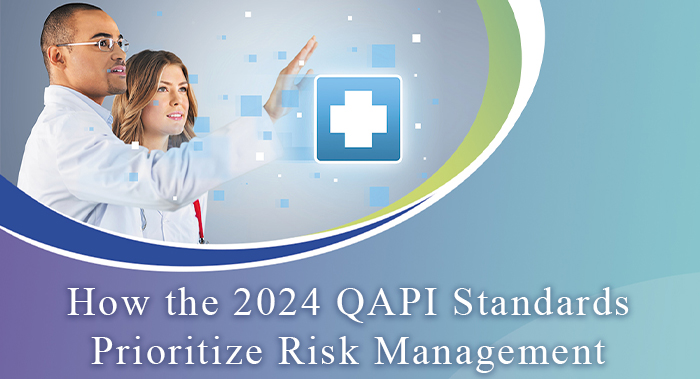
How the 2024 QAPI Standards Prioritize Risk Management
On March 9, the Centers for Medicare & Medicaid Services (CMS) took a significant step in refining the regulatory landscape for healthcare facilities by issuing new interpretive guidelines. These guidelines elucidate the necessary actions hospitals must take to adhere to the Condition of Participati...
View More

Top 7 HIPAA Compliance Checklist for 2024
HIPAA stands for Health Insurance Portability and Accountability Act, which has set a standard for healthcare organizations and professionals to secure and protect patients' sensitive health information or PHI. Non-compliance with HIPAA standards doesn't just cost thousands of dollars; it’...
View More

Patient Safety Goals | How many are there?
Do you know which organization annually develops and institutes natinoal patient safety goals? The answer is that the Joint Commission regularly reviews the National Patient Safety Goals program to ensure healthcare facilities focus on patient safety. It is based on their impact, cost, and effective...
View More

What Are The 5 Important Elements Of Disaster Preparedness
CMS regularly provides and changes the guidelines for health information privacy compliance along with other components related to the industry. Emergency preparedness programs OR disaster preparedness is a pivotal component within the healthcare sector. It ensures that sensitive health data remains...
View More

Medicare Payments 2024 and Medicare Charges for 2024
Healthcare is one of the vast industries that revolves around many changes. Many changes are coming to medicare payments in 2024. CMS (Centers for Medicare & Medicaid Services) unveiled changes on 12 October 2023 related to premium, deductible, and coinsurance details for the Medicare Part A and Par...
View More
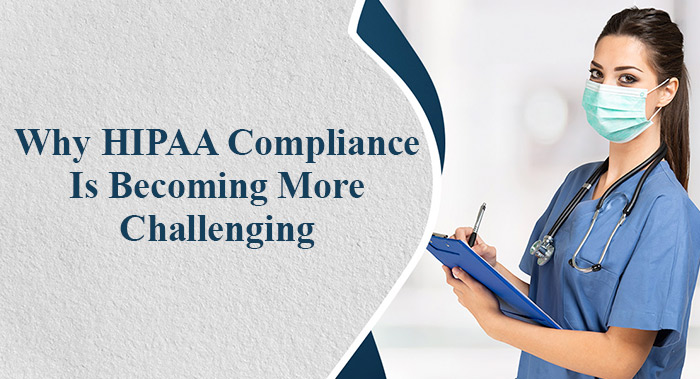
Why HIPAA Compliance Is Becoming More Challenging
Years go by, but the healthcare industry stays rife with change. HIPAA is one of the most complex laws that evolve with the newest compliance trends. Adapting HIPAA changes for 2024 is bound to come in the way of healthcare professionals and providers. Being on the cusp of industry changes always pa...
View More
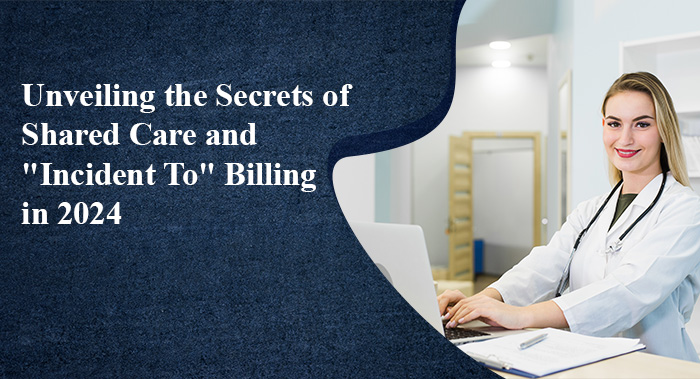
Unveiling the Secrets of Shared Care and Incident To Billing in 2024
As the pages of 2023 turn and the new year arrives, healthcare compliance bodies are also ready to introduce many other changes. Current CMS changes to their shared care policy have added to the confusion for physicians and other professionals. Hence, it's imperative to understand the incident t...
View More

Compliance as Competitive Advantage: Boost Your Practice in 2024
In the ever-changing scenario of healthcare regulation, staying in front of changing rules and regulations and unlocking your compliance skills is a great challenge for healthcare payers. Increasing the reactive approach and proactively identifying regulatory risks in their early stages is imperativ...
View More

The Importance of Training and Education for Healthcare Compliance
Healthcare compliance is essential to staying informed about changing laws, regulations, and the best practices needed to achieve it. Preventing fraud and maintaining ethical standards in healthcare services and patient care is essential. Consequently, providing healthcare employees, staff, and pers...
View More
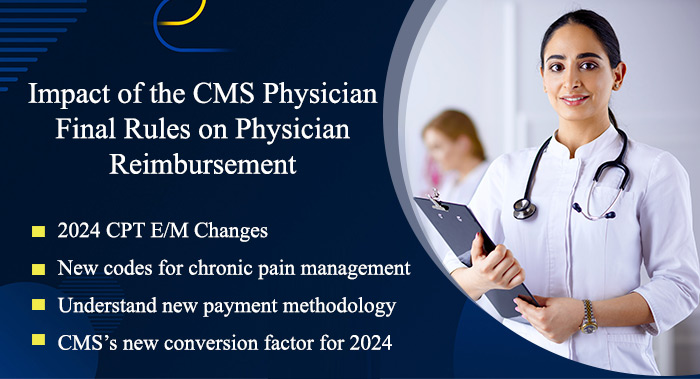
Impact of the CMS Physician Final Rules on Physician Reimbursement
The Centers for Medicare and Medicaid Services (CMS) has reduced a certain amount in the conversion factor (CF), dropping the rate from $34.61 to $33.06. This change represents a $1.55 decrease compared to the 2022 rate. The finalization of this rule has sparked concern among numerous providers due ...
View More
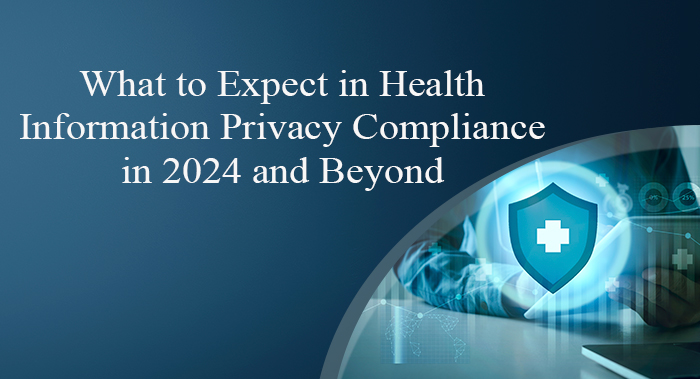
What to Expect in Health Information Privacy Compliance in 2024 and Beyond
The healthcare industry has witnessed many technological advancements focusing on improving patient data privacy and security. However, for organizations in the healthcare industry, it’s crucial to be aware of health information privacy compliance in 2024. The field undergoes significant changes, ...
View More

Provider Enrollment vs Credentialing What is the Difference
If you are confused between provider enrollment and credentialing, you have landed on the right platform. However, both are vital processes in the healthcare industry and are crucial for building a successful provider enrollment program. This piece of work will help you navigate the key difference b...
View More
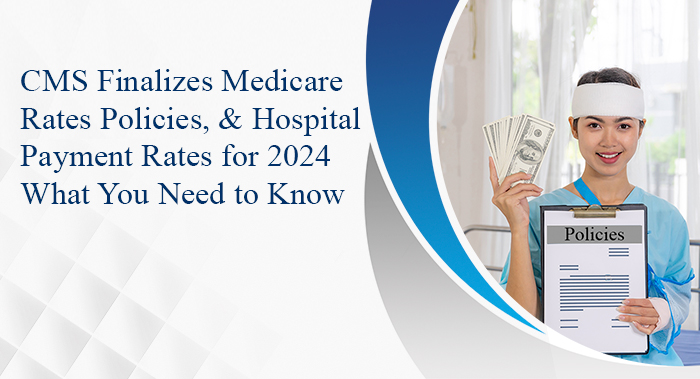
CMS Finalizes Medicare Rates, Policies, and Hospital Payment Rates for 2024
The Centers for Medicare & Medicaid Services (CMS) issued the final rule on August 1, 2023, for the fiscal year (FY) 2024 Medicare hospital inpatient prospective payment system (IPPS) and long-term care hospital prospective payment system (LTCH PPS). As a healthcare associate, it’s crucial to be a...
View More

What Covers in Preventive Medicare Services
The government designs the medicare program for older people with disabilities who turn 65. You can enroll in the program three months before your milestone birthday and continue for a maximum of three months following. You'll be registered in Medicare by default if you get Social Security benef...
View More
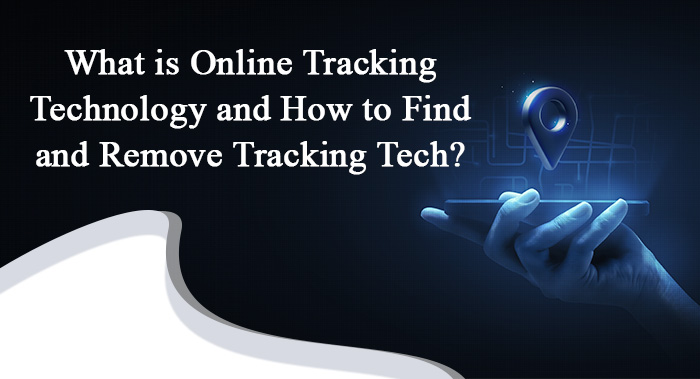
What is Online Tracking Technology, and How to Find and Remove Tracking Tec
According to the HHS (U.S. Department of Health and Human Services), tracking technologies are tools that websites and mobile apps use to monitor what users do on their platforms. These tools help them understand how people use their services and improve them.
It's important to know that we&#...
View More
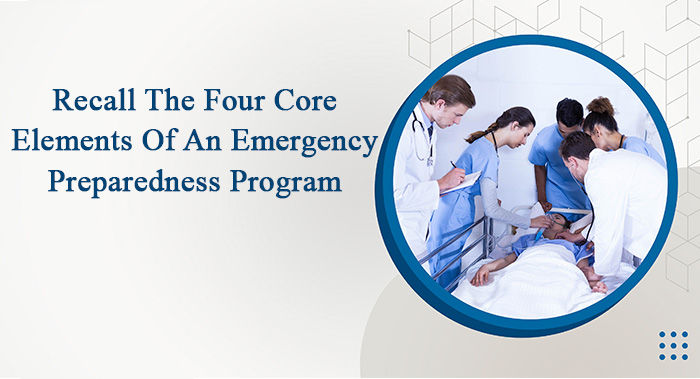
Recall The Four Core Elements Of An Emergency Preparedness Program
Do you have a well-planned emergency preparedness program? Does it comply with the CMS's new guidelines or a TJC compliance? If you’re an organization participating in Medicare and Medicaid Programs, then it’s imperative to have a robust Emergency Preparedness Plan. The final Emergency Prepa...
View More

Provider Credentialing What You Need to Know
The healthcare profession is one of the trusted occupations after the pandemic or before that, and it's because of the trusted systems in the healthcare industry. However, ensuring the competence and reliability of healthcare providers is paramount. This is where provider credentialing, often ca...
View More
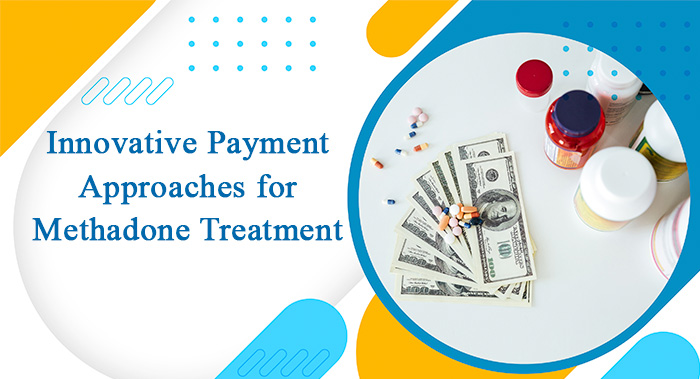
Innovative Payment Approaches for Methadone Treatment
Behavioral health services covered by Medicare, which are services related to mental health and substance use, can significantly impact a person's overall well-being. It's important to know what CMS Physician Proposed Rule 2024 is.
Methadone is an FDA-approved medication for treating Opio...
View More

What You Need to Know for HIPAA Compliance in 2023
In the modern healthcare landscape, protecting patient data is paramount. The Health Insurance Portability and Accountability Act (HIPAA) plays a crucial role in safeguarding sensitive health information from misuse, ensuring confidentiality, and promoting trust between patients and healthcare provi...
View More
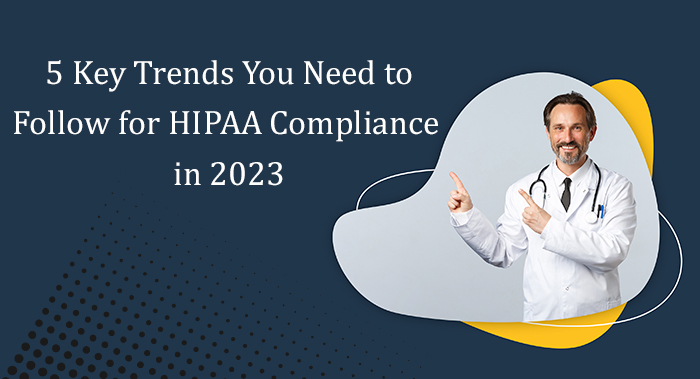
5 Key Trends You Need to Follow for HIPAA Compliance in 2023
The healthcare industry is always embracing new ways of working, such as the migration to digital and technological impact on the healthcare industry. It tends to the changing HIPAA compliance, and the new updates to the HIPAA Privacy Rule have been set to roll on in 2023. Indeed, there are many cha...
View More

Empower Your Nursing Education: Discover the Top 7 Dynamic Teaching Strateg
Empower Your Nursing Education: Discover the Top 7 Dynamic Teaching Strategies!
Training Strategies for Nursing play a pivotal role in shaping the educational experience for nursing students, fostering their growth as competent and compassionate healthcare professionals. As the healthcare land...
View More
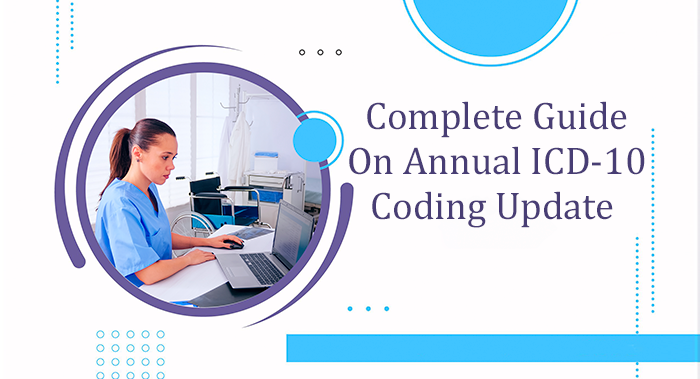
Complete Guide On Annual ICD-10 Coding Update
When the healthcare industry adopted a new E&M coding structure, ICD-10, in October 2015, the majority of healthcare professionals dreaded the change as it was introduced to change several factors of billing and coding in the healthcare industry. However, every year, ICD-10 coding updates have been ...
View More

AI ChatBots, Healthcare and New Challenges to HIPAA Compliance
The world is moving towards technology. Artificial Intelligence (AI) has revolutionized various industries, including healthcare, by introducing AI-powered chatbots like Google's Bard and OpenAI's ChatGPT, improving patient engagement and healthcare delivery. However, every coin has two flip...
View More

10 Effective Ways and Tools For HIPAA Compliant When Working from Home
Recently, the concept of HIPAA compliance for remote workers has become more prevalent than ever before, transforming how businesses operate across various industries. Healthcare has embraced this paradigm shift, allowing medical professionals to offer their services remotely. However, the transitio...
View More

How to be HIPAA Compliant Working From Home
In recent months, cities nationwide have implemented stay-at-home orders to mitigate the spread of COVID-19. As a result, a significant portion of the workforce, including healthcare professionals, has transitioned to remote work arrangements. While essential personnel continue to work on-site, many...
View More

Tips for Nurses to Deal With ADHD
Nursing is such a challenging profession, and living with ADHD makes it more struggling. This profession requires extraordinary skills such as attention to detail, well-planning, and focus. Nurses with ADHD struggle to have these skills, but does it obstruct their success? Not sure? Let's move a...
View More
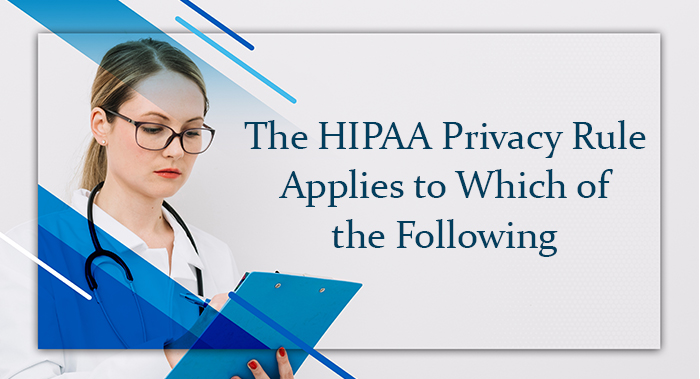
The HIPAA Privacy Rule Applies to Which of the Following
Are you wondering who must comply with HIPAA Privacy Rule? Physicians and healthcare institutions are the primary entities entrusted with patients' intimate and personal information that they expect to keep private and secure. So, what happens if personal information leaks or the rule breaches? ...
View More
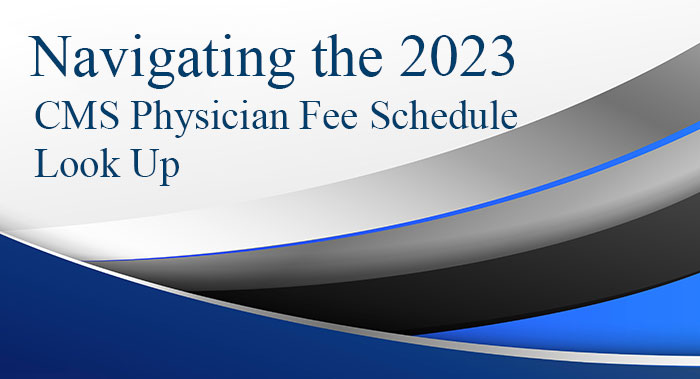
Navigating The 2023 CMS Physician Fee Schedule, Look Up
The final 2023 Medicare Physician Fee Schedule (MPFS) has released by the Centers for Medicare and Medicaid Services (CMS) on November 1. 2022. It included the upgradation of key factors such as Medicare payment and quality provision. This proposal has reduced the fee schedule conversion factor from...
View More

HIPAA Violation: What You Need to Know
Do you know a single HIPAA violation can cost a lot that your hospital can’t afford? However, HIPAA violation is common in the healthcare sector; hence healthcare professionals and individuals must know everything about HIPAA violation!
HIPAA stands for the Health Insurance Portability and Acco...
View More
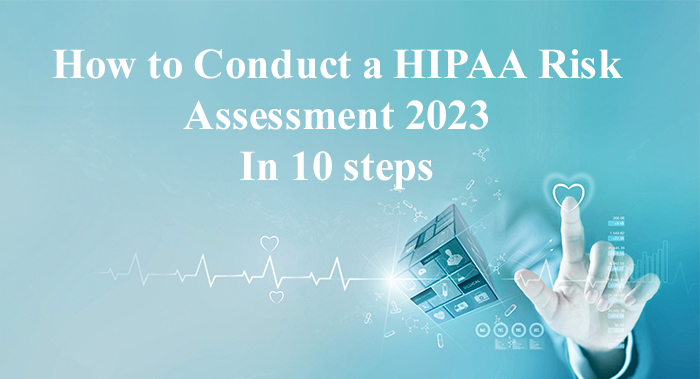
How to Conduct a HIPAA Risk Assessment 2023 in 10 Steps
A HIPAA Security Risk Assessment is necessary for compliance with the HIPAA Security Rule for Covered Entities and Business Associates. Conducting a HIPAA Security Risk Assessment can be daunting, but ensuring the confidentiality and privacy of patients' sensitive information is necessary.
It...
View More
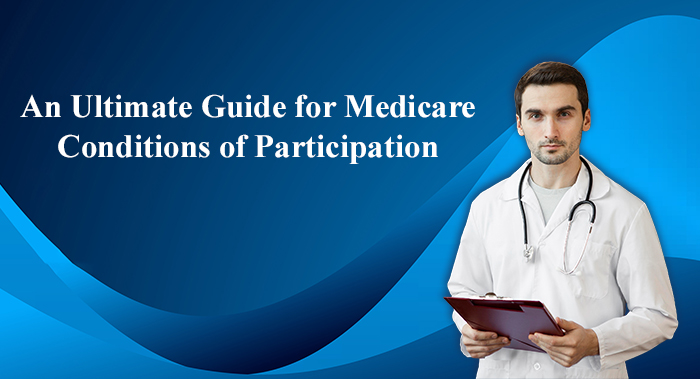
Medicare Conditions of Participation - Ultimate Guide
There are frequent healthcare subjects that have been changed by the Centers for Medicare & Medicaid Services (CMS) following recent amendments and technological changes. CoPs (conditions of participation) also lie in the category of ongoing priority witnessing many changes and guidelines for the CR...
View More
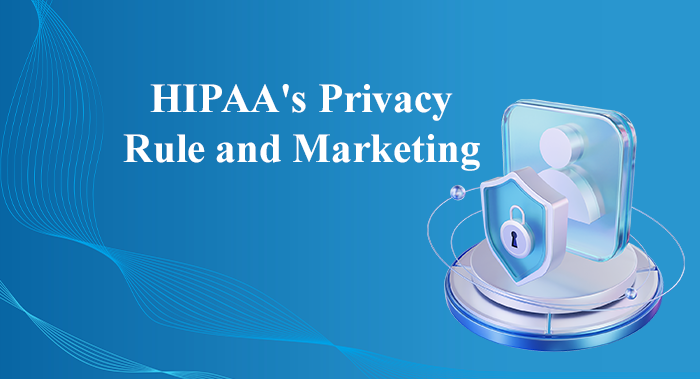
HIPAA Privacy Rule and Marketing: When Covered Entities Cant Use or Disclos
Protected Health Information (PHI) is any identifiable health information transmitted or maintained in any form or medium by a covered entity. Covered entities are healthcare providers, health plans, and healthcare clearinghouses. The Privacy Rule, implemented by the Health Insurance Portability and...
View More
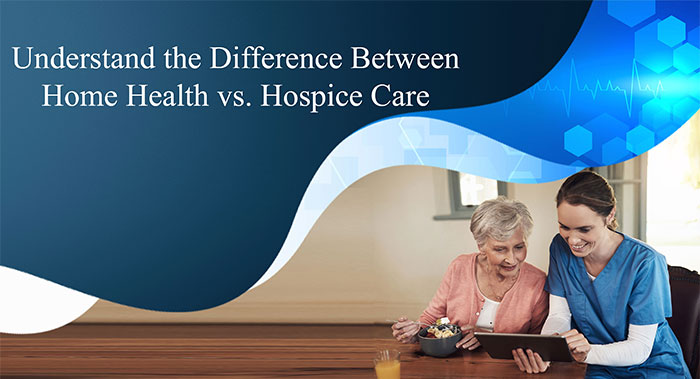
Understand the Difference Between Home Health vs. Hospice Care
Whether you’re a patient or health caregiver, it’s important to understand the difference between home health vs hospice care. However, these are a type of healthcare services misunderstood by many people. There are many similarities and differences between these healthcare services; hence, we c...
View More
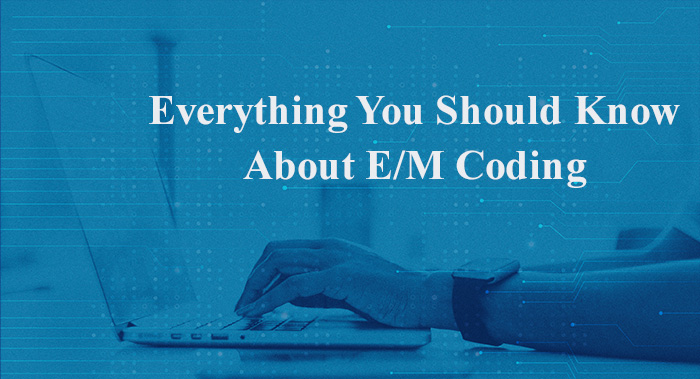
Everything You Should Know About E/M Coding
E/M coding, short for evaluation and management coding, involves CPT codes from the range 99202 to 99499 and is a system used to categorize medical services provided by healthcare professionals. E/M codes help healthcare providers communicate the level of care provided to patients to insurers for bi...
View More
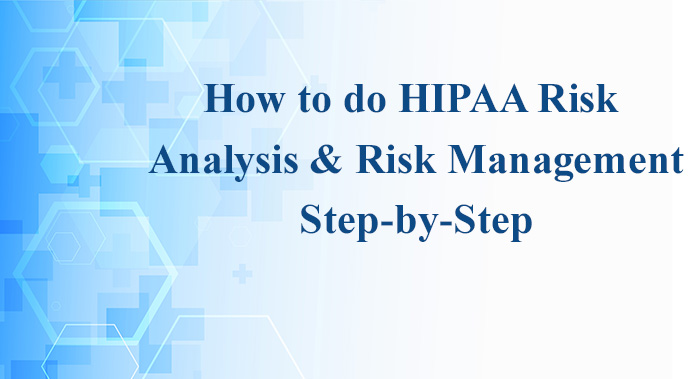
HIPAA Risk Analysis and Risk Management
Risk analysis involves identifying potential risks and vulnerabilities to electronically protected health information. It also consists of evaluating the likelihood and impact of those risks on ePHI and identifying appropriate security measures to address those risks. Essentially, risk analysis is t...
View More
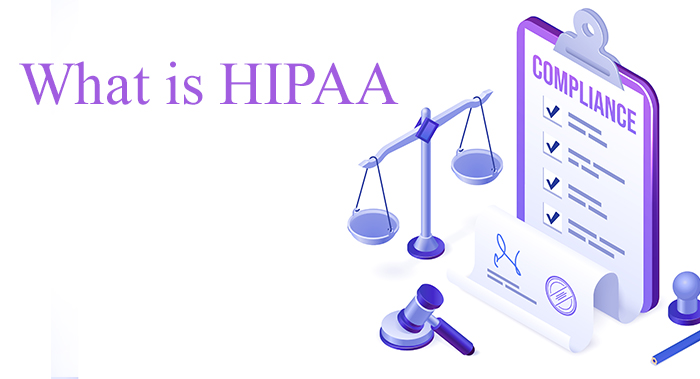
Basics of HIPAA and Compliance
As all the industry technology is growing fast, initiatives across all sectors have adopted methods to make business more quick and efficient. The one primary industry is the health sector is growing at a very high rate, and all the rules have been advanced to safeguard patient information. One law ...
View More
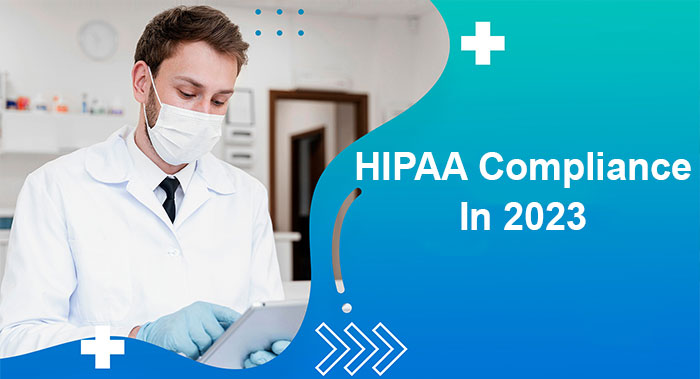
Things You Need to Know for HIPAA Compliance in 2023
HIPAA compliance and many new ways of working in the healthcare industry are changing. The migration to digital and evolving technologies has driven updates to the HIPAA privacy rule and is being followed in 2023. The official rules have been changed, and the approach to compliance is also changed.
...
View More
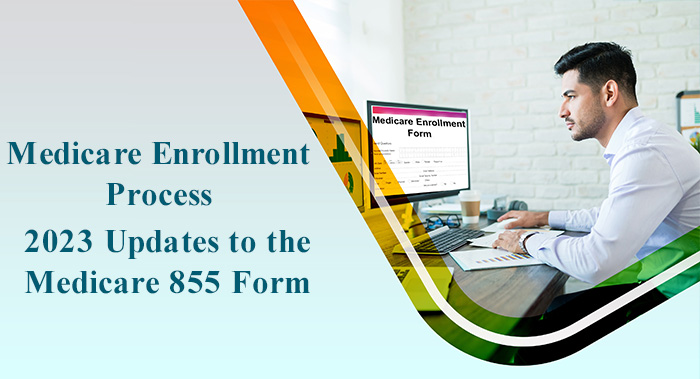
Streamlining the Medicare Enrollment Process: 2023 Updates to the Medicare
Medicare is a federal health insurance program that provides coverage to people over the age of 65, as well as those with certain disabilities. To enroll in Medicare as a healthcare provider, you must complete the Medicare 855 enrollment form. This form is used to gather information about your pract...
View More
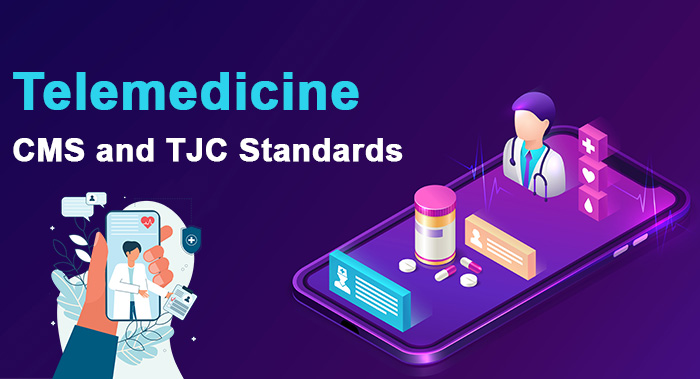
Ensuring Quality in Telemedicine: A Guide to CMS and TJC Standards
Telemedicine has become an increasingly popular and effective way for healthcare providers to deliver care to patients remotely. It allows patients to receive care from the comfort of their own homes, and it enables providers to reach a larger patient population. However, with the rapid growth of te...
View More

HIPAA Audit and Enforcement Updates for 2023
The Health Insurance Portability and Accountability Act (HIPAA) is a federal law that protects the privacy of patients' health information and sets standards for the security of electronically protected health information (ePHI). The U.S. Department of Health and Human Services (HHS) is responsi...
View More
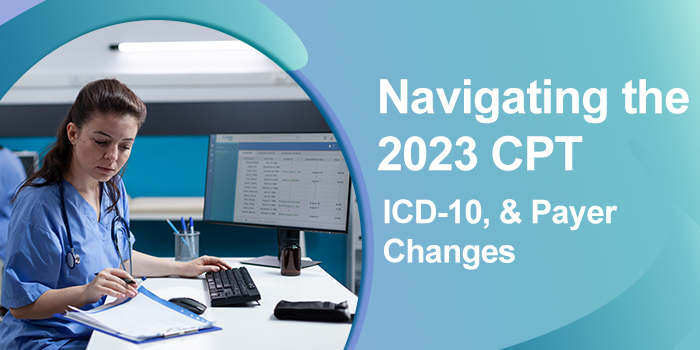
Navigating the 2023 CPT, ICD-10, and Payer Changes
The Current Procedural Terminology (CPT) code set is a medical coding system used to report medical, surgical, and diagnostic procedures and services. The International Classification of Diseases, 10th Edition (ICD-10) is a medical coding system that is used to report diagnoses and other health-rela...
View More

How to Avoid Medical Claim Denials and Increase Revenue Fast?
In any medical role, insurance denials can be unexceptionally found. Inadequate handling of insurance denials impacts the billing team as in whole. In 2022, new ways to avoid claim denials and postpone payments are continuously surfaced by insurance payers. It should not as a surprise that the medic...
View More
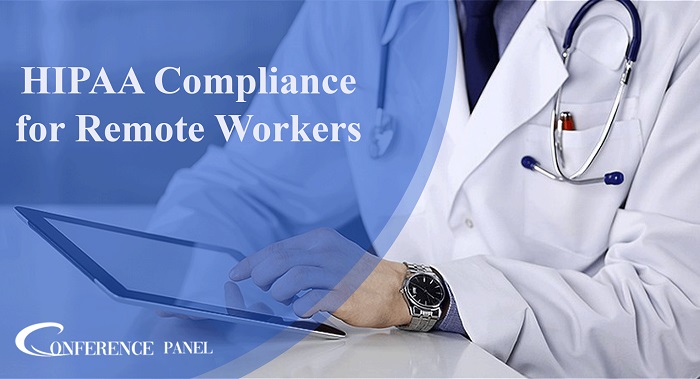
HIPAA Compliance for Remote Workers - Conferencepanel
We had already started to notice a lot of people making the shift towards the new remote work protocol before Covid-19 forced the majority of people to transition to work from home for the foreseeable future. Since it can be more convenient for the employee and more cost-effective for their organiza...
View More

Speed Up Skills With Healthcare Webinars
“Designing an effective healthcare organization, and the formulation of patient care and safety in healthcare is the utmost need, and it’s where the lacking comes from. Healthcare Webinars at Conference Panel is a benefits package that lets the professionals carry forward their roles smoothly to...
View More
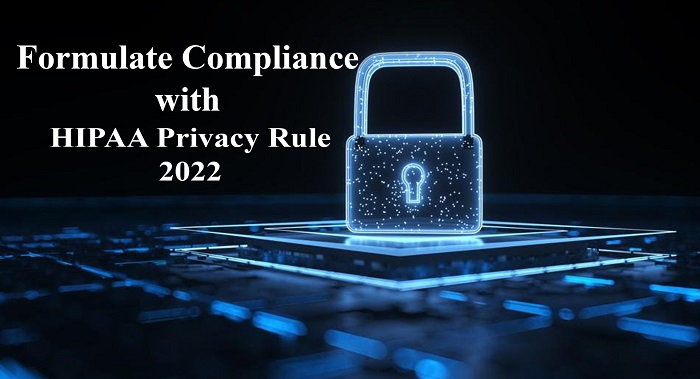
Formulate Compliance with HIPAA Privacy Rule 2022
A fundamental rule of HIPAA is changing the core essential, are you aware of that? Yes, its HIPAA Privacy Rule, being updated its scenario in 2022 for the need for strict compliance and protection measures.
Wait, before diving directly into the updates, there is a need to look at what HIPAA Priva...
View More

Successful Negotiation Tips for Businessman
Business negotiation skills are the successful mantra when it comes to business deals but to be a successful negotiator means the power and strength of self-centered skills. In reality, every business person wishes to build an organization that portrays fruitful results. If we look at the art of neg...
View More

How Covid-19 Impacted Medicare Revalidation Process
An unwanted break in the medical revalidation process was led by the rigorous covid-19, but to let you know, the process of medical revalidations is here again, with new implementations.
Medicare put a hold on revalidations, but it doesn’t mean that you were free from the guidelines. However, t...
View More

HIPAA Rulings and Guidance for 2022
If you are given a chance to define HIPAA Rulings and Guidance for 2022 for business associates, how will you explain them? A Business Associate of HIPAA can play a major role in the healthcare department to secure the data transmission at a huge level. While HIPAA says to be regulated under certain...
View More
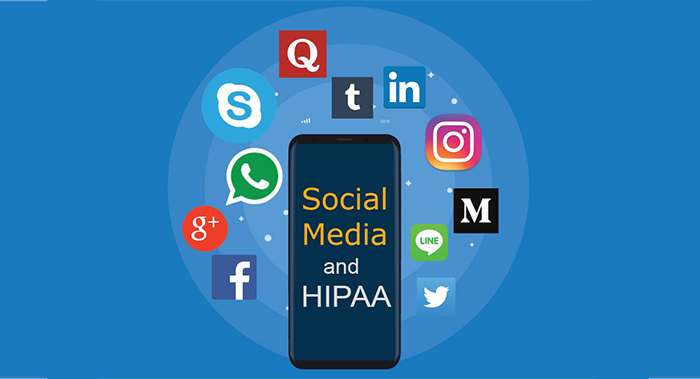
Social Media and HIPAA Everything You Need to Know
HIPAA came into existence long before social media appeared on the scenes of digitalization. Yet, HIPAA isn’t unaware of the security measures that need to be taken to ensure the safety of both the patient and the hospital facilities.
However, there is no denying the plenty of offerings or the ...
View More

Joint Commission 2022 National Patient Safety Goals (NPSG) for Acute and Cr
National Patient Safety Goals are issued to ensure improved services in patient safety. The NPSG goals aim at health care safety and the best ways to provide solutions to the problems. Before we get started and take a deep dive into national patient safety goals 2022, we must get well-versed with th...
View More

Master Critical Access Hospital Compliance 2022 Series
It’s 2022 and time for all the Critical Access Hospitals to stay abreast of the latest changes and maintain compliance. The last changes in the CAH manual were devoid of the tag numbers that included interpretive guidelines or survey procedures. Well, here comes another informative update and keep...
View More
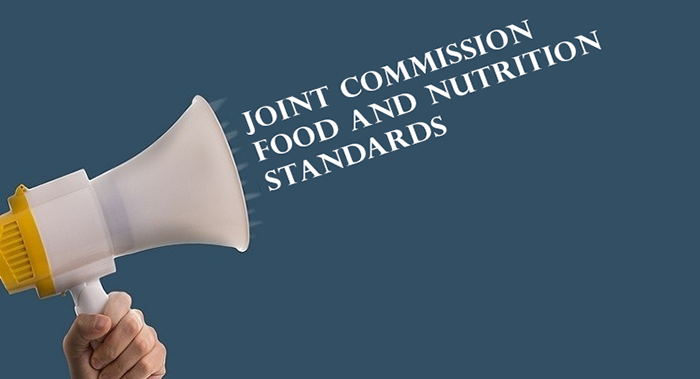
Joint Commission Food and Nutrition Standards
The Joint Commission sets food and nutrition standards to ensure healthcare facilities provide safe, high-quality meals to patients. In 2022, the organization updated its requirements to improve patient care, safety, and compliance with federal regulations. These standards apply to hospitals, nursin...
View More
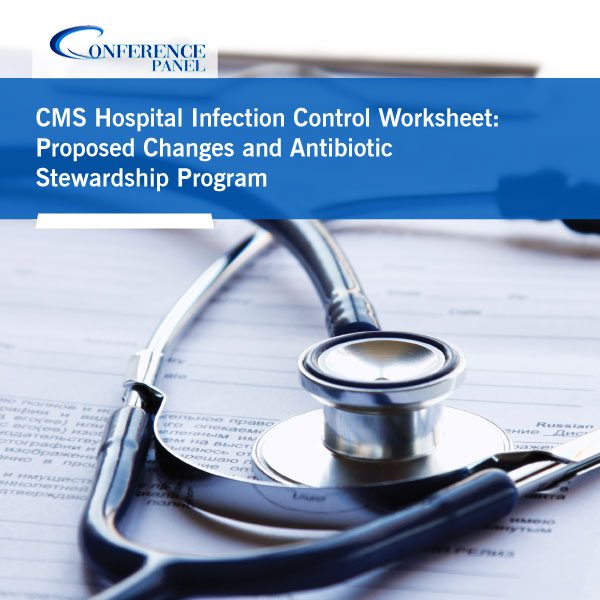
CMS Hospital Infection Control Worksheet 2021
Working in a healthcare setting requires not just patience, but also sheer vigilance and a set of laser eyes that absorb all the updates especially the ones done by CMS. CMS hospital infection control worksheet 2021 is one such important update that you must consider. You don’t want to receive i...
View More





























































































BEHAVIOR WHAT CODES OF CONDUCT CAN DO copy_1717148285.jpg)
























































































